|
"Faugh-a-Ballagh"
April 1943 -
1951 - 1957 -
1958 - 1959
this page
The Regimental
Gazette of
The Royal Irish
Fusiliers
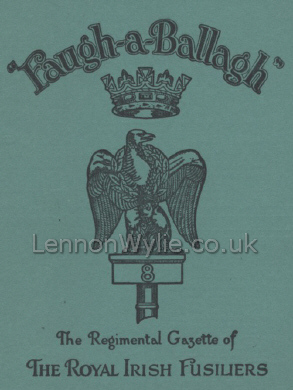
RIF
Sergeants' Mess Album
|
Contents
~~~~~~
Editorial
Letters to the Editor
Our Contemporaries
Editor's Notices
Life Subscribers
Obituary:
Lieut.-Colonel Walter Francis Templer, C.B.E.,
D.L.
Lieut.-Colonel Phillip Gould, D.S.O.
Prisoners of War
An Overseas Battalion:
Beating the Retreat
Notes
"H.Q." Company Notes
The Toll of War
Obituary Mr. A. A. Mortimer -
Fus. S. T. Purvis
Acknowledgements
The Infantry
Trained Clerks
Evils of Drink
Christmas Story
The Island Fortress:
Malta Militant
Historical Outline
Western Mediterranean Islands: - not transcribed but as jpgs
i. The Balearic Islands
"
"
ii. Corsica
"
"
iii. Sardinia
"
" |
Contents
~~~~~~
Reading Between the Lines
A Battalion in England: B.B.C. Broadcast
Cross Country
"Barrosa"
Officers 1st Battalion The Royal Irish Fusiliers - photo
Officers and Colours 2nd Battalion The Royal Irish Fusiliers - photo
Colour Party, 2nd Battalion The R.I.F. - photo
A Rough Passage
The North African Campaign
Diary of War Events
A Battalion in the Green Isle:
Change of Face
Sergeants' Mess Notes
Band Notes
Information Corner
"Well done that man"
Report re Orderly Room
These Gradings
Old Comrades' Association
The Armagh Light Infantry |
|
Editorial
It is with deep regret we announce
the death of Lieut.-Colonel Walter Francis Templer, C.B.E., D.L., which
took place on the 18th December, 1942, at the Manor House, Loughgall.
We offer our deepest sympathy to Mrs. Templer and son on their great loss.
The funeral from the Manor and thence to the
graveyard was almost private. The service was taken by His Grace the Lord
Primate of All Ireland, assisted by the Rev. F. H. Kinch, Rector of
Loughgall.
The chief mourners were his son, Lieut.-General G.
W. R. Templer, D.S.O., O.B.E., and his wife. The following attended
the funeral:- Major A. E. Solly, representing the Colonel of the Regiment;
Major P. Marjoribanks Egerton; Major Murphy Palmer; Major E. K. Walkington;
Lieutenant J. W. F. Ford; Sergeant Brown, representing Battalions of the
Regiment, Depot Party and Old Comrades' Association.
Amongst others present were:- Colonel E. G. H.
Clarke, M.C.; Lieut.-Colonel Long; Lieut.-Colonel E. P. Shirley; Major F.
G. Crozier; Major Brush; Captain C. Nicholson.
Mr. Delmege Trimble, O.B.E., Honorary Secretary,
Prisoners of War and Comforts Fund, The Royal Irish Fusiliers, personally
attended, together with representatives of the United States Army and the
Royal Ulster Constabulary:- Messrs. Babington Callaghan, J. R. O. Cope, Mr.
and Mrs. Robin Cowdy, Dr. H. C. C. Deane, Miss Isa McClintock and Mrs.
Norman Patrick.
Pipe Major McCormack played the Regimental
Laments.
Colonel Templer prior to his death expressed a
wish that no flowers or wreaths should be sent to his funeral, but that any
donations in lieu should be sent to the Armagh County Infirmary in which he
has been interested for many years. Only one wreath was therefore
sent by the Regiment, inscribed: "From all ranks past and present. The
Royal Irish Fusiliers."
It was suggested that all donations intended to be
sent to the Armagh County Infirmary should be set aside to name a bed after
Colonel Templer and a subscription list was opened by O. C. Depot Party to
members of the Regiment, his old comrades and friends.
Subscriptions to date have been received from the
following:- General Webber; General Burrowes; Brigadier Carden Roe;
Brigadier Low; Colonels McCarthy, O'Leary, Gregg, The O'Donovan;
Lieut.-Colonels Davidson, Olphert, Burke Murphy and Bolland; Majors Phillip
Egerton, Murphy Palmer, Solly and Shewell; Captains Victor Mitchell,
Charles Austin, Hudson Dougall, E. W. Jones; Officers' Mess, Sergeants'
Mess and P.R.I. 6th Battalion, Sergeants' Mess and P.R.I. 30th Battalion.
It is hoped to give further details in our next
issue.
It is also with deep regret we
announce the death of Lieut.-Colonel Phillip Gould, D.S.O., who died at his
residence, The Hermitage, Newport Pagnell, on 1st July, 1942. Colonel
Gould served in the Regiment for nearly 30 years.
It is regretted that a number of
obituaries must be held over for various reasons to our next issue.
We are receiving a number of
letters from subscribers, saying that they are not getting their copies of
the Faugh. There is no doubt that copies are being sent to the
addresses shown in our address book and the fault must lie with subscribers
not notifying the editor of change in address. A number of subscribers
have given clubs and banks as addresses, and there are mainly the ones who
give the most trouble, as apparently re-direction is faulty. Would
subscribers who have not sent their addresses, as requested in the last
issue, please take advantage of the address form in this issue and forward
to the Editor, The Depot, Armagh.
We are out of touch with the following and would
be grateful for news and address:-
Alexander, I. S.; Barstow, H. S. P.; Bystan, E.
M.; Bradish, W. B. P.; Chance, N. F.; Davies, H. A.; Doyle, J. F. H.;
Garvey, R. F. C.; Horsefall, J. H. C.; Kentish, B. L.; Kaulback; Hagan;
Major, C. R; McCarthy, G. W.; McCartney, S. O.; Mertz, A. G.; McNally, H.
Q.; Mead, W. P.; Morris, A. S.; Neill, P. F. S.; O'Farrell, C. P.;
Patterson' Taylor, J. M.; Wood, C. J.; Wilson, F.
R. This list is by no means exhaustive.
The Museum is being taken over by
Colonel McCarthy O'Leary, D.S.O., M.C., and anyone wishing to get in touch
with him can do so care of the Editor. The Museum remains at its old
site in Manor House, Loughgall.
An officer recently home from overseas brings of
Lieutenant L. P. Bradley, L.R.A.M., whom he met "somewhere in the
Middle East." Mr. Bradley left the Regiment in Bombay to take up
an appointment as Director of Music to the South African Police.
On the outbreak of war Mr. Bradley and his Band
joined a South African Police Brigade. Later he attended a
Quartermaster's Course and for some time was Q.M. and O.C.H.Q. Coy of a Battalion
of the South African Police, with whom he served at "Hell Fire"
Pass. Luckily he and a proportion of his Band were not in Tobruk at
the time of its capture, other members of the Band not being so
fortunate. Mr. Bradley has now re-organised the Band and has been
giving performances in Egypt. We wish him and his family every
success. Mrs. Bradley joined the South African Women's Auxiliary Air
Force and rose to the rank of Sergeant.
Letters to the Editor
The Barracks, Armagh,
8th December 1942
The Editor,
Faugh-a-Ballagh
Dear Sir,
I am forwarding you
two photographs of the officers of the 1st and 2nd Battalions of our grand
old Regiment, The Royal Irish Fusiliers, who fought in the South African
Campaign 43 years ago. I have done my best to memorise their names,
but if it should happen that I have misnamed some, or not able to give the
names of others, I hope the old soldiers who knew them will recognise and
recall their names. I have been helped by Jimmie Willis with the 2nd
Battalion officer's names. (photos here)
Here in Armagh we have a few of the old African
Veterans left (1st Battalion), the one and only Oney O'Brien, Bill
Mallaghan, Tom Phillips (catch me if you can), and the writer. (2nd
Battalion) Colonel Templer, Bill Hanley, Jimmie Willis, Billy Wilson, Bill
Burgess and Jack Hassett, if there are others whose names I have omitted I
deeply apologise.
Should you decide to reproduce the photographs for
the "Faugh-a-Ballagh Gazette" you are at liberty to do so, and if
the originals can be made of any other use by you I am only too pleased to
let you have them.
I remain your obedient servant, 5350 R. McCann
The photos so kindly
supplied by ex C.Q.M.S. McCann are from the Transvaal War Album and are
reproduced in this issue.
Editor's Notices
Editor:
Major A. E. Solly,
Royal Irish Fusiliers, The Depot, Armagh
Produced for the Editor by:
Combined Service Publications Ltd., 67/68 Jermyn Street, London S.W.1
Printed by:
F. J. Parsons Ltd., "Observer" Buildings, Hastings
Advertisements by:
The Association of Service Newspapers, 67/68 Jermyn Street, London,
S.W.1
Subscription Rates for those who have left the Regiment, and their friends:-
Single Copy 3s 2d (Officers) 2s
2d (other ranks)
Subs. for 1 year 6s 4d
" 4s
4d
"
Subs for 5 years 30s
0d
" 20s
0d
"
Subs for life 60s
0d
" 40s
0d
"
The Editor would like to point out
that the interests of the Faugh-a-Ballagh would be served if subscribers
would consider the claims of advertisers in the Journal.
The fact that goods made of raw materials in short
supply owing to war conditions are advertised in this magazine should not be
taken as an indication that they are necessarily available for export.
Our Contemporaries
The Editor wishes to acknowledge
with thanks the undermentioned publications:-
The Dragon, The Ranger, The Sprig
of Shillelagh, The Suffolk Regimental Gazette, The Snapper, The Tank
|
Life Subscribers to
Faugh-a-Ballagh
1. Brigadier-General A. R. Burrowes, C.M.G.,
D.S.O.
2. Lieutenant-Colonel R. B. Neill, D.S.O.
3. Major E. W. Shewell
4. Captain E. M. McIlwaine
5. Captain A. J. Trousdell, D.S.O., M.C.
6. Mrs. D. W. Churcher
7. C.S.M. P. Comerford, Seaforth Highlanders (late Royal Irish
Fusiliers)
8. Rev. A. B. Burrowes
9. Brigadier-General R. G. Shuter, D.S.O.
10. Mr. John McNee
11. Mr. G. McGowan
12. Captain G. Hennessy
13. Lieutenant-Colonel W. A. V. Findlater
14. Lieutenant-Colonel C. F. Meares, D.S.O.
15. Lieutenant and Quartermaster C. Lewis, London Scottish (late
R.I.F.)
16. Lieutenant-Colonel D. A. Davison, O.B.E.
17. Sergeant M. McGrath, Essex Regiment (late R.I.F.)
18. Lieutenant-General G. W. R. Templer, D.S.O., O.B.E.
19. Colonel F. W. E. Johnson, D.S.O.
20. Lieutenant-Colonel R. C. Dobbs, C.B.E., D.S.O.
21. Major G. M. King
22. Captain H. E. McClenaghan, I.C.S.
23. Captain J. E. Murphy
24. Major J. C. P. O'Brien, M.C.
25. Captain G. L. G. Barrington
26. Mr. J. O'Brien
27. Wing-Commander D. L. Allen, R.A.F.
28. Captain F. Tynan
29. Captain G. W. P. Fennell, R.A.
30. Lieutenant-Colonel T. F. H. Graves
31. Captain N. A. Rattray
32. Colonel H. W. D. McCarthy-O'Leary, D.S.O., M.C.
33. Colonel G. V. W. Hill, D.S.O.
34. Mrs. W. D. Dooner
35. Captain L. P. Bradley, L.R.A.M.
36. Major E. Tobin
37. R.S.M. A. J. Whiting, D.C.M.
38. Major A. E. Solly
39. Colour/Sergant J. Guy
40. Lieutenant-Colonel A. V. Olphert
41. Major E. K. Walkington
42. Lieutenant-Colonel W. T. H. Gregg, D.S.O.
43. W. Lucas, M.B.E.
44. Major W. Garrard
45. Major R. W. R. Jeudwine
46. Brigadier-General A. B. Incledon-Webber, C.M.G., D.S.O.
47. Brigadier W. Carden Roe, M.C.
48. Colonel The O'Donovan, M.C.
49. Mr. J. E. Harrington
50. Captain B. L. Kentish
51. Captain C. Austin
Obituary
Lieutenant-Colonel Walter Francis Templer, C.B.E.,
D.L.
We regret to announce the death of
Lieutenant-Colonel W. F. Templer at the Manor House, Loughgall, on 18th
December 1942.
Born on the 28th August 1865, he was the second
son of the late R. B. Templer, of Cloven Eden, near Loughgall. He was
educated at Charterhouse and Cambridge. At the end of 1886 he passed
into the Royal Military College, whence he was gazetted to the Royal Irish
Fusiliers on 11th February 1888.
He was posted to the 1st Battalion, then stationed
at Peshawar. His promotion to Lieutenant took place in 18th December
1889. A year later he was posted for a tour of duty at the Regimental
Depot, Armagh, on completion of which he joined the 2nd Battalion at
Kilkenny.
In 1894 he was re-posted to the 1st Battalion in
Allahabad, but on promotion to Captain on 6th July 1897, he was again
posted to the 2nd Battalion.
In January, 1899, Captain Templer transferred to
the Army Pay Corps, with which he served until his retirement on 1st April
1921. His promotion to Major took place on 11th February 1909, and to
Lieutenant-Colonel on 26th October 1915. During the twenty-two years
he served with the Royal Army Pay Corps he held many important
appointments, where his administrative ability and organising powers earned
the recognition they deserved, and he was appointed Commander of the Most
Excellent Order of the British Empire on 12th December 1919.
As a sportsman, Lieutenant-Colonel Templer was
above the average. He represented Pembroke College, Cambridge, and the
Royal Military College at Association football, was a good horseman, and a
fine shot with both rifle and gun. He also represented his college at
Cambridge at lawn tennis, which he continued to play until quite recent
years. At the time of his death he was President of the Armagh Lawn Tennis
Club.
During the South African War Lieutenant-Colonel
Templer administered the Comforts Fund of the Regiment, and with the
surplus of this fund, which he had great difficulty in bringing back to the
United Kingdom, was formed the first beginnings of the Old Comrades'
Association. In this he was always intensely interested, so when it
was decided to remove the administration of the fund from the Depot he took
over the accounts and organisation in January 1925, and for ten years
spared no pains to make the Association an outstanding feature of the
Regiment.
The formation of a regimental Museum was not only
his suggestion, but came into existence through his untiring seal and
energy. When the Depot was moved from Armagh, Lieutenant-Colonel
Templer arranged for the removal of the Museum complete to Loughgall Manor
to await the return of the Regimental Depot to its old home. He was
an authority on the uniforms, medals, and prints of the Regiment, and many
of the unique articles now in the Museum were his discoveries.
He took an active part in public affairs in County
Armagh, and was appointed Deputy Lieutenant of the County in 1939.
His kindly nature and friendliness with all were
such that he never had an enemy.
He married on 7th November 1895, in Cawnpore,
Mabel Eileen, daughter of the late Major Robert Johnstone, and had one son,
now Lieutenant-General G. W. R. Templer, D.S.O. To them, on behalf of
the Regiment, we offer our deepest sympathy on their great loss.
Lieutenant-Colonel Phillip Gould, D.S.O.
Colonel Gould was born at Southsea
on 22nd August 1870. He was the son of Captain Lewis P. Gould and Mrs.
Gould. His father served in the old 96th Regiment.
Colonel Gould was educated at Shrewsbury and later
went on to the Royal Military College, Sandhurst, from which he passed out
to be commissioned as a 2nd/Lieutenant in the Royal Irish Fusiliers on 12th
April 1891. In 1900 he was promoted Captain, later he was promoted
Brevet Major and Major in 1910. At the time of his retirement he was
Lieutenant-Colonel.
Colonel Gould saw much service abroad and was in
three campaigns. In the South African War he was present at the defence
of Ladysmith and was twice mentioned in despatches. He held the
Queen's Medal with five clasps and the King's Medal with two clasps. It was
in this campaign he was promoted Brevet Major.
During the Great War he served with the Regiment on
the Western Front and from 1916 until the Armistice he was commanding a
battalion of Connaught Rangers. He was also mentioned in despatches
and during the battle of St. Eloi on 15th March 1915, he further
distinguished himself and was created a Companion of the Distinguished
Service Order.
Prior to the South African campaign he saw service
in the Sudanese War and took part in the battle of Omdurman. After the
Great War he volunteered and went to Russia with the Archangel Force.
In 1914 Colonel Gould marries Maria Augusta,
daughter of Major Alexander Frederick Stewart. She survives her
husband, also two sons and one daughter - Lieut. Phillip Francis Stewart
Gould, R.N., who holds the D.S.C. and bar, Lieut. Myles Tyrer Gould, who is
at present serving in the Regiment, and Miss Gillian Leigh Gould.
Another son of Colonel Gould, Flying Officer Dermot Evelyn Gould, was killed
in action in April 1940. His death was a great blow to his father.
On the formation of the Home Guard in this war,
Colonel Gould immediately joined up and was Second in Command of the Newport
Pagnell Platoon. Since his retirement he took great interest in the
British Legion and was president of the local branch. He was also
interested in the Soldiers' Sailors' and Airmen's Families'
Association. For some years he held the position of Honorary Secretary
to the Buckingham Boy Scouts' Association.
To his widow, his sons and daughter on behalf of
the Regiment we offer our deepest sympathy. |
|
THE ROYAL IRISH FUSILIERS
List of Officers and Men in the Royal Irish Fusiliers who are Prisoners
of War
This list has been obtained from the British Red Cross and re-checked
by the Officer in Charge Records.
| Army No. |
Rank and Name |
Camp |
P.O.W. No. |
77694
34959
3774269
3774310
3773841
7143207
6977152
6975552
6978033
6986464
3774740
6975199
3773849
7043770
3774291
3653983
3774538
7043500
3773857
3773811
3774711
3773178
3774670
3311708
7043533
6975448
6977149
7043763
6976846
1465721
3773820
3774542
3773868
6976382
2745895
6976638
6975158
6975452
6976206
4460103
6976300
6975732
6976038
7042909
6976471
7043709
7043520
6976272
7043120
1056314
6979017
7010437
6978643
6975578
3774350
7043011
7043206
3774720
6976268
6976573
7042963
3765335
7043177
7046563
7047770
6975445
7045588
7045690
7044781
7043512
6976349
7044800
7046730
6985936
7044649
7044661
3774554 |
Lieutenant Twysden, Sir Anthony Roger
Duncan
Major Wingfield, Mervyn Patrick (The Hon.)
Fusilier Barr, John Joseph
Fusilier Bickerstaff, Joseph
Fusilier Brady, James Stephens
Fusilier Brady, James
Fusilier Bridges, Francis
Lance-Corporal Cartmill, Fred John
Fusilier Cunningham, Hugh
Fusilier Dempsey, James
Fusilier Dixon, George Lewis
Fusilier Dobbin, Hugh
Fusilier Doran, Albert George
Fusilier Evans, John
Fusilier Finnegan, William David
Corporal Garvin, Ernest John
Fusilier Goulden, John
Fusilier Graham, William Robert
Fusilier Grimes, George Edward
Fusilier Hailwood, Robert
Fusilier Hayes, John Charles
Fusilier Heffey, Henry
Fusilier Holmes, Eric
Fusilier Howitt, Joseph
Fusilier Hume, Herbert
Corporal Irvine, Thomas
Fusilier Irwin, Wilfred
Fusilier Jenkins, Charles Craig
Fusilier Keaveney, John
Fusilier Kerr, John
Fusilier Kissock, Harold
Fusilier Laite, William Charles
Fusilier Leech, Charles Osborn
L/Cpl. Lilburn, William Henry
Fusilier McAteer, William
Fusilier McAuley, Charles
Fusilier McCabe, Daniel
Fusilier McCarthy, Horace
Fusilier McHarg, John
Fusilier McHugh, James
Fusilier McIlwrath, Samuel James
Fusilier McNally, Joseph
Fusilier McPartland, George
Lance-Corporal Maguire, Cornelius
Lance-Corporal Matthews, Thomas
Fusilier Murray, John
Fusilier Nuttall, Joseph
Fusilier O'Brien, Harry
Fusilier O'Connell, Patrick
Fusilier O'Hara, Charles
Fusilier Palmer, William
Sergeant Patterson, William
Fusilier/Bandsman Plunkett, Stanley
Corporal Reilly, John Joseph
Fusilier Siddell, Herbert Percy
Fusilier Steadman, Henry
Fusilier Stringer, Frank
Fusilier Walsh, Eric
Fusilier Whelan, Patrick Joseph
Fusilier Wilson, Andrew
Fusilier Wilson, Frederick
Lance-Corporal Woodfine, John
Fusilier Tormey, Thomas Joseph
Fusilier Astbury, Frederick
Fusilier Doyle, Richard Vincent
Lance-Sergeant Gardiner, Eric Joseph
Fusilier Garner, George Arthur
Fusilier Goody, William George
Fusilier Lawton, Herbert
Fusilier McBride, Robert
Fusilier McGrath, David Irvine
Fusilier Powell, John
Fusilier Read, Albert George
Fusilier Storton, Samuel
Fusilier Till, William Horace
Fusilier Warren, Francis Henry
Fusilier Whitaker, Frank |
Oflag VII B
P.G. 29 PM
Stalag XXI B
Stalag XXI B
Stalag VIII B
Stalag III A
Stalag XXI D
Stalag XX A
Stalag VIII B
Stalag XX B
Stalag VIII B
Stalag XXI D
Stalag XX ABAB 40
Stalag VIII B
Stalag XX B
Oflag III C
Stalag XX B
Stalag VIII B
Stalag XX A
Feldpost 35465
Stalag XX A
Stalag VIII B
Stalag VIII B
Feldpost 35465 D
Stalag XX A
Stalag VIII B
Stalag XX ABAB 40
Stalag XX A
Stalag III B VIII C
Stalag V III B
Stalag XX A
Stalag XX A
Stalag VIII B
Stalag XXI D
Stalag XX B
Stalag VIII B
Stalag XX B
Stalag XXI D
Stalag XX B
PGN 59 PM
Stalag XXI D
Stalag XX B
Stalag III D
Stalag XX B
Stalag III D
Stalag XX B
Stalag VIII B
Stalag XXI D
Stalag III A (693)
Stalag VIII B
Stalag XX B
Stalag XX A
Stalag XXI A
Stalag XXI D
Stalag VIII B
Stalag VIII B
Stalag III D
Stalag VIII B
Stalag XX A
Stalag XX B
Stalag XX B
Stalag XXI D
Stalag VIII B
Camp Address
Campo Concentramento, P.G.N. 66, P.M. 3400, Italy
Campo Concentramento, P.G.N. 66, P.M. 3400, Italy
Not yet known
Campo Concentramento, P.G.N. 66, P.M. 3400, Italy
Campo Concentramento, P.G.N., 66, P.M. 3400, Italy
Ospedale Militare, Caserta Napoli, Italy
Not yet known
Ospedale Militare, Caserta Napoli, Italy
Campo Concentramento, P.G.N., 66, P.M. 3400, Italy
Not yet known
Not yet known
Campo Concentramento, P.G.N. 66, P.M. 3400, Italy
Not yet known
Not yet known
Not yet known |
379
3200
86
7041
17787
7815
2303
6455
15329
10852
7611
3290
14188
3748
15223
2293
1527
18241
15224
14189
15228
366
15792
351
7752
3291
6870
25771
42285
14005
14187
15225
17786
5181
6491
15704
16018
6906
6867
3300
2453
17243
7748
5462
3292
6868
4976
7750
7749
14035
7842
7827
12999
3293
16486
31169
7816
17788
20198
3602
5575
1800
7010
|
|
|
An Overseas Battalion
President, Regimental Institute,
The Royal Irish Fusiliers,
17th February 1943
Royal Irish Fusiliers,
The Depot, Armagh,
Northern Ireland.
Dear Solly, Thank
you very much for your cable regarding "Faugh" Notes and also the
old copies which have since arrived. Will you please let me know how
many you despatched and the amount owed and I will send you a cheque.
I am sorry to say that owing to extreme pressure
of work it has been quite impossible to get down to notes and although I
have asked Companies and sent reminders, no results have been achieved at
the moment.
In the meantime I will enclose a few notes and
items of interest which you may like to use and add as much
"colouring" as the censor will allow. The Commanding
Officer will as soon as possible write and send to you obituaries for
Gough, Low and the others, and, all being well, they may arrive in time for
your next issue. I am sure you will understand there is mighty little
news these days, and apart from numerous visits to various villages by the
"Drums and Pipes," where retreat has been beaten, the social life
is non-existent. There have been few changes apart from the departure
of Algy and the arrival of Maurice to take over in September. Algy's
departure was during a fairly good raid and Dick Norman, the Adjutant,
Dougie, and myself saw him off in the end after two days effort.
Shortly after he left the Drums and Pipes beat retreat and I send you
cutting and also a copy of which I am sure you will agree is something the
Battalion regards with much pride.
We all heard with the greatest regret of the death
of Colonel Templer, and perhaps you will kindly mention this too, with
appreciation of all here for the great interest he took in the Regimental
Museum and all Regimental affairs.
The enclosed poem is by our old friend and liaison
officer, Captain Salamone, who is very well and putting great energy into
the local Home Guard. His photograph is also forwarded and you will
remember he has contributed to the "Faugh" on a previous
occasion.
We are all pleased to welcome the arrival of our
new R.C. Padre, Captain Alwyn, and his keenness in the Regimental Football
team, which is doing extraordinary well, is much appreciated. The
R.M.O., Captain Barber, who is an Ulsterman, keeps busy and fit writing
picturesque stories in his Sanitary Dairy and swats flies in his spare
time.
Dick Norman, the versatile Adjutant and student of
Early English, who has done so much in keeping the Drums and Pipes up to
the high standard which earns the admiration of everyone, is very fit and
enjoys his daily 24 hour's work with pleasant interludes when he initials
the Officer's Leave Book. He has a noble assistant in O.R.Q.M.S. Shaw
(Pooh Bah), the well-known placid telephonist. Tom Tarny, the genial
Q.M. and his assistant, R.Q.M.S. Renton are both well and busy pulling G
1098s and L.D.R.s to pieces. Mr. Palmer, the R.S.M., is now in form
again after a most harassing and anxious period during the recent shortages
here. It was with the greatest relief he heard the news of the safe
arrival of the convoy ship at the - Harbour, and his supply of moustache
wax was hastily unloaded. After the recent exercises, Mr. Palmer (Mr.
Middleton's representative here) feels quite qualified to enter the Land
Development Profession as his knowledge and selection of "sites"
is nothing ordinary.
Yours sincerely, BINDON
~~~~~~~~~~~~
Cutting from the Premier Local Paper
Local News
BEATING OF THE RETREAT CEREMONY
The fourth ceremonial Beating of
the Retreat of the war was performed last Friday afternoon by the Drums and
Pipes of the Royal Irish Fusiliers in the presence of His Excellency the
Governor, and distinguished representatives of all three Services.
An Air Alert has just concluded as the Drums and
Pipes marched on the Place headed by the Drum Major. The colourful
saffron kilts of the pipers with their green be-ribboned bagpipes combined
with the impeccable precision of the ceremonial drill were in accord with
the romantic but strongly defined music of the Pipes and Drums.
The evening hour drew a big crowd of spectators,
many of them civilians on their way to or from the bus and a considerable
number of representatives of all Services. It was amusing to note how
people's steps quickened as they came within sound of the stirring pipe
music.
The scene as evening fell was one of a strange and
haunting serenity in contrast to the preceeding Air Raid, with the
possibility of another attack as dusk came on. The peace-time
smartness of the parade, the simple formality of the ceremony, combined
with the carefree delight of the onlookers do give a significant little
picture of life in war-time with the unbreakable resilience of spirit which
has kept high the heads and hearts of people and garrison alike.
There was prolonged applause for the Drummers and Pipers of the Royal Irish
Fusiliers, a Regiment that has made itself known and respected through the
long months of every sort of conditions here.
NOTES
The new C.O. made his first public
appearance, as Commanding Officer of the Royal Irish Fusiliers, on Friday,
16th October, 1942, when the Drums and Pipes presented a magnificent
performance of "Beating Retreat."
The parade was attended by H.E. The Governor, the
G.O.C., and senior representative of all services.
The following copy of H.E. The Governor's letter
to the C.O. and the C.O.'S reply to H.E. The Governor's letter is appended
without comment.
Copy of the Governor's letter to the C.O.
The Palace,
October 1942
My dear -----, Having been present at the beating
of the Retreat on the square on Friday night I want to write a few words of
congratulations to the Battalion which you have the privilege to command.
Nobody who was present on parade could fail to
carry away a vivid impression of an old and historic ceremony carried out
with perfection by the Royal Irish Fusiliers. The drill, the turn out
and the music were all faultless. It is good for all of us in these
times to see such a fine example of soldierly Esprit de Corps.
May good fortune attend you during your period in
command of this magnificent Battalion.
Yours sincerely,
--------
Copy of the C.O.'s reply
The Royal Irish Fusiliers,
October 1942
My dear --------, On behalf of the Battalion I
have the honour to command, I am writing to let you know how deeply we
appreciate the gratifying tributes, not only to the Drums and Pipes, but to
the Battalion as a whole, paid to us in your kind letter of 18th
October. It makes us proud indeed to feel that our Commander-in-Chief
should entertain so high an opinion of us. We shall endeavour always
to see that this is not misplaced. For myself I must thank you for
your good wishes on assuming command. I am sensible both of my high
privilege and of my trusteeship.
Yours sincerely,
-----------
The Drums and Pipes beat Retreat
at ------- on the evening of Monday, 24th August 1942, by special request
of the people of that village which is so well known to the Battalion.
The Commanding Officer received a silver cup from
the parish priest, the Rev. Victor Gauchi, and responded to the speech
recorded below.
"Colonel, officers and men of the Royal Irish
Fusiliers.
"It gives me
the greatest pleasure to welcome you in our midst on behalf of the citizens
of -------, on this memorable day, the feast of our Patron St. Bartholomew
the Apostle. It is occasions such as this that strengthen the bonds
that exist between the military and the civil population.
"Since the last
time I had the honour to greet you in our midst we have gone through some
troublesome times and things looked very gloomy, but with the grace of God,
the courage of our airmen and the vast amount of work put in by the
soldiers, we have pulled through, and now with the most welcome addition of
the convoy and valuable supplies, we look forward to the day when we shall
strike with all our might and power at the common foe.
"Many of the
farmers around here are indebted to your soldiers for the valuable help
they gave in assisting to collect the harvest. Hundreds of other
little good deeds are done unostensively and without advertisement which
all go to strengthen the good will between our peoples and your soldiers.
"Sir, it is on
behalf of the citizens of ------- that I present this cup as a token of
appreciation and friendship, and wherever you go in the future, God always
guard you and your Battalion."
H.Q. COMPANY NOTES
We were all sorry to bid farewell
to Major and Mrs. P. M. M. Egerton who left in August and we hope that they
both, and indeed Miss Egerton, are benefiting by the change after their
long stay here. They take our best wishes for good luck and the hope of a
meeting in the near future.
Major L. Bindon Blood, who spent many pleasant
months with the ----- Battalion whilst waiting to join us, eventually
arrived and took over command. C.S.M. Finch has recently arrived from
Captain Dougall's Company to take over the duties of C.S.M. and is now well
in his stride. C.Q.M.S. Billing continues to work very hard, when he
isn't on leave, and is still trying to fathom the mystery of rations, the daily
issue, the broken and unexpired portions, and reserve, surplus, spare and
what's over at the end and why. In this interesting occupation he has
the assistance of Lance-Corporal Chapman and also Lance-Corporal Lowey, who
will give anything away from the stores providing he obtains a
receipt. Lance-Corporal Chapman keeps the Company Army Savings Book
and the figure for the Company is now nearing the £3,000 mark. It
will be interesting to compare notes with the various "H.Q."
Companys of the Regiment on this subject in the future.
Lance-Corporal Barton is at present Company Clerk and gets through an
enormous amount of work and has now reached the stage that a return goes to
the Orderly Room before it is even asked for and in this way it is hoped to
cut down unnecessary correspondence.
We have a charming view from our Company Office of
the Grand Woods Hotel and occasionally we get a glimpse of one of the
residents reclining in one of the many armchairs after breakfast, reading
the morning paper with much interest. Sergeant Woods and Corporal
Gumley take round cigarettes and chocolate at intervals and a sweet gong is
gently sounded when each of the four meals is about to be served. It
is a pleasure to all when one of their old friends, often former residents,
look in and usually end up by agreeing to stay the night or 28 days,
depending on how they can fit it in. It is certainly a dream house
with most lavish hospitality extended to guests at all times and our
congratulations go to the resident manager, Sergeant Woods.
Captain Callaby, the optimistic M.T.O., recently
joined the Married Family List and we extend our heartiest congratulations
to him and with both him and Mrs. Callaby good luck in the future and this
expression goes for his petrol returns too.
Mr. Johnson, who has just arrived, has now joined
the M.T. and is giving Captain Callaby much assistance. Sergeant
Montgomery, who handed over the remains of the M.T. to Sergeant Dawson, has
now joined the Mortar Platoon and Sergant Dawson continues the search.
Sergeant Donaghy is a great asset on the technical
side of the M.T. and were not for his great keenness and wish to do guards
on every occasion he would be able to devote even more of his time to the G
109s.
Corporal Hanna and Fusilier Harrington, who enjoy
the benefit of Sergeant Donaghy's library and stroll down to meals in the
sunshine, fit in a bit of work during the intervals.
The cookhouse still functions under the personal
direction and supervision of the Maitre d'Hotel, Sergeant Cox, who is a
host in himself, and his efforts at Christmas would have to have been seen
to have been believed! The food and general feeling of good-will and
well-being was indeed a pleasure to note on Sergeant Cox's face, and indeed
many of us who participated and enjoyed the fare on that day. The
Commanding Officer visited dinners and conveyed his greetings, whereupon
his health was drunk with great enthusiasm and after the customary
"Faugh-a-Ballagh," reserved for special occasions, was given, all
set to, to deal with the four pounds fifteen ounces of most excellent food
which was assisted on its downward journey by bottles of beer.
On the afternoon of the 24th of December, a party
was given for the married families' children, which was very well attended
and many old friends came, including Mrs. Taylor and Mrs. Holmes, whose
husbands are now on the staff. A large illuminated Christmas Tree was
decorated and all children received presents and prizes for the many games
which were organised with great success by the two Padres, Captain Tollit
and Captain Alwyn. The Regimental Band contributed to the success of
the afternoon and it was most pleasant to see the delight and happiness in
all the children's faces. It is hoped that the next party will be
held soon again and that it will be the Victory one.
THE TOLL OF WAR
It was a day long air raid, that
fateful Sunday, 15th February 1942. The alarm sounded early in the
morning and the "all clear" did not go till late in the
evening. At about 1750 hours a lone enemy plane unleashed from a
cloudy sky its deadly missile: the bomb crashed in between the ----- and
the Regent picture house, which was showing "North-West Mounted
Police" and which was just filling for the last show of the
evening. Death and destruction descended in dreadful din, dust and
debris.
The news of the tragedy soon spread to every nook
and corner and everywhere mourned the loss of an acquaintance, of a friend
or of a relative. At about 2030 hours, Joe Slattery was telling us
the awful story, his clothes dusty and untidy, he was there. We were
in the Mess anti-room, Algy Allen, George French, Captain Jack Barber
(R.A.M.C.) Lieutenant H. Callaby, Lieutenant Tom Tarry, Lieutenant E. F.
Boland and I. The telephone bell in the hall blurred out.
"Bow" answered it. "Sir, may I speak to
you?" The C.O. left the room, we waited in mute expectation, as
though elsewhere, somewhere, something terrible was happening. The
C.O. spoke on the phone for a minute or two then came back to us, sullen, speechless,
followed by Boland. "Callaby, have my car ready and the
bus," spoke the C.O., and, after a pause, in a slightly lower
tone full of emotion and gazing absently into the fire, went on,
"George - Peter is gone - and most probably Hugh also. Father
Navin has just rung up. Rescue work is still going on, he is keeping
any men on leave to help. They will return in our bus
later!" We all heard, the blow had fallen heavily on all of us,
we spoke not a word.
Captain Peter F. Low was the Adjutant at Battalion
H.Q., and Captain H. Gough was O.C. "A" Company at ------,
Peter's body was amongst the first to be removed from the debris but Hugh
Gough's was not found and recovered till about midnight. Fusilier
Albert Haunce, it seems, was killed on the pavement outside the picture
house. The C.O. and George left for ------ at about 2100 hours.
The bodies of the three unfortunate victims were
brought by Father Navin to our A.D.S. that same night in the Unit
ambulance, which Captain Barber has sent out with stretcher bearers to
render what assistance might be required.
On the Monday preparations were made for the
funeral and all Companys were circularised accordingly. Father B.
Navin, S.C.F. (R.C.), who is attached to our Battalion H.Q. for messing and
other general purposes, saw to every detail and arranged to say Holy Mass
"de requie" on Tuesday at 0900 hours in the small church at
------. The C.O., all officers at Battalion H.Q. and about 80 other
ranks attended.
As soon as Father Navin ascended the altar, the
strident warble of the siren announced the approach of enemy aircraft and
immediately B---- Battery opened out in hot reception. Nothing
materialised in our sector but, to use the now familiar expression,
"X" "got it again."
After the Gospel, Father Navin in a few well
chosen words singled out each man's individual merits and expressed
sympathy with the absent relatives of the deceased, with the C.O., with
officers and men on the loss of three young lives full of promise, three
very valued friends. Mass ended at 0940 hours. By this time an
erstwhile serene and beautifully clear sky became overcast and threatening
and in a matter of minutes, the gathering clouds let loose a torrential
downpour of sleet and rain, accompanied by lightning and thunder.
At 1030 hours the trucks detailed to hearse the
coffins moved out of ----- with their mournful loads, each embedded in
floral tributes and covered by a Union Jack. The bearer parties
brought up the rear in a Unit bus. The C.O. followed in his car,
taking with him the second in command and the C.E. Padre, who had just come
up to Battalion H.Q. on his bicycle. Father Navin, Lieutenant Boland
and myself went by ------ in my car.
On reaching ------ we took up our route positions,
the C.O. being the chief mourner, and the funeral procession wended its
way, first in quick and then in slow march towards the cemetery to the
dirgeful skirling of the pipes, the muffles rumble of the drums, and the
drenching patter of the storm.
At the cemetery gate the coffins were unhearsed by
the bearer parties and being met by the Acting Chaplain General, the Very
Rev. Foster, S.C.F. (C.E.), who conducted the burial ceremony.
Mourned and mourners moved up slowly to the graves which were ready for the
final stage of the committal service.
"earth to earth, ashes to ashes, dust to
dust; in sure and certain hopes of the Resurrection to Eternal
Life!" The Firing Party, under Signal Sergeant S. Henry, Peter's
favourite when he was O.C. Signals, fired three volleys and the bugles gave
out the shrill, plaintive notes of the Last Post, followed, after a brief
ominous pause, by the mystic call of Reveille, symbolical of Life and
Eternity beyond the Tomb.
To them the busy world is hushed, the fever of
life is over and their work is done. With heavy hearts and measured
beat, one by one their comrades walk up to the graveside to render a last
tribute of farewell. They pause, they salute and leave them in the
peace and silent communion of the dead.
WALTER SALOMONE
17th February 1942
INTERMENT AT ST. ANDREW'S CEMETERY
| Name |
Plot |
Row |
Grave |
Interment |
Date |
|
Capt. Hugh H. Gough
Capt. P. F. Low
Fus. Albert Haunce |
1
1
1 |
3
4
3 |
14
15
12 |
1
1
3 |
17.2.42
"
|
The short obituary notice
hereunder will be read with real regret by the older officers of the
Regiment who served in Cairo during the 1920's. Mr. Mortimer's great
kindness and hospitality to many of us will always be remembered. He
had his leg amputated in Egypt some years ago and came here in 1938 to live
with his sister-in-law.
Obituary.
With deep regret we announce the
death of Mr. A. A. Mortimer, which took place at the Blue Sisters'
Hospital, on Friday morning, 30th October 1942. Mr. Mortimer had been
in failing health for some time.
We offer our sincere sympathy to his sister-in-law
Mrs. Elizabeth Mortimer, to his nephew, Mr. Arthur Mortimer, and to his
nieces in England.
The funeral will take place privately at the
cemetery, to-day, Saturday, at 3.30 p.m.
0979112 FUSILIER PURVIS, S. T.
It is with deep regret that we
report the death of Fusilier Thomas Purvis by enemy action on the 26th
April, 1942.
Fusilier Purvis lived at Church Street, Cookstown,
Co. Tyrone, and joined the Regiment at Omagh on 27th December, 1937, was
then drafted to "D" Company, Royal Irish Fusiliers in which he
served in Palestine and Malta. He was very reserved, keen in his
work, reliable and extremely popular among his fellow men. All
"D" Company join his brother in grief at the loss of a comrade,
who has passed on to duty in a higher sphere of Life.
Acknowledgements
The following Christmas greeting
cables were received with the greatest pleasure by all ranks.
"Best Wishes of
all Ranks 1943" - Low
"Seasons
Greetings all Ranks" - O'Donovan
"A Happy Xmas
to you all and Best Wishes for the New Year" - From Colour-Sergeant
and Mrs. Stent
"Xmas New Year
Greetings to you and all Ranks. Everyone here proud of you. Good Luck"
- Philip Barbara Egerton
"Every Good
Wish for the New Year" - Neville Chance
An Airgraph letter
sending Greetings to All Ranks was received from Brigadier-General A. R.
Burrows, C.M.G., D.S.O.
The Premier Local Paper
12th September 1942
THE INFANTRY
An Appreciation
The
heavy tramp of marching feet
In the early misty
dawn,
Awakes the narrow
slumbering street,
With high and mighty
scorn.
Up
the dusty winding track,
To a bomb scarred
battered drome,
The Infantry are
there again,
They look on it as
home.
In
the heat of the blazing sun,
They toil throughout
the day,
Even the bombs of
the devilish hun,
They treat as fairy
play.
The
sun is setting in the west,
An orange ball of
fire,
And through its rays
come silhouettes,
Of men who seldom
tire.
These are the men of the bulldog breed,
The Infantry of the
line,
Who can forget such
men as these,
In the mortal march
of time.
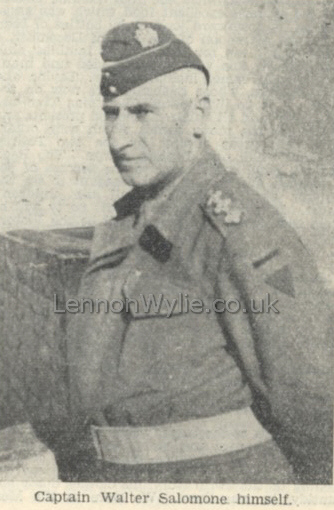
~~~~~~~~~~~~~~~~~~~~~
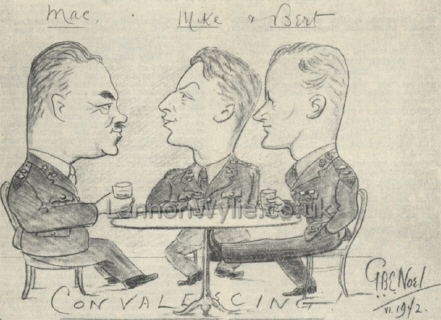
Mac
Mike
Bert
Convalescing
~~~~~~~~~~~~~~~~~~
A Battalion in
England
The following is the script of a B.B.C. broadcast which
took place on Monday, 25th January, 1943.
The Royal Irish Fusiliers,
Monday, 25th January, 1943,
2.20-2.40 p.m.
(Fade in on pipes and drums
playing "Faugh-a-Ballagh: fade as background for announcement)
ANNOUNCER: "Pipes and Drums," a programme of pipe
band music by the Pipes and Drums of the Royal Irish Fusiliers. The
Pipe-Major is T. Woods. Hugh MacPhee has written the programme, and Maurice
Shillington presents it.
(Brings up
"Faugh-a-Ballagh"; holds, and fade behind opening speech)
NARRATOR: That's the tune that stirs all Irish Fusiliers.
It calls to mind their Regimental Battle Cry first shouted at the Battle of
Barrosa in the Peninsula War, and since heard on many a hard-fought field
all over the world.
Faugh-a-Ballagh" is Gaelic, and is translated
as "Clear the way." It is the Regimental Motto, and the
Regimental nickname - "The Faughs" - by which they are known
throughout the Army bears witness to the way they have lived up to it.
(Bring up
"Faugh-a-Ballagh": hold, and fade out behind next speech)
NARRATOR: The Regiment is entitled to six Regimental Badges
- most of them marks of Royal favour. The 87th and 89th Regiments, now the
Royal Irish Fusiliers, were both raised in 1793 in the counties of
Tipperary, Galway, Clare, Wexford, Kilkenny, Waterford, and Limerick. It is
from such grand fighting materials that the traditions of the Regiment
grew. An English officer who served with the "Faughs" from 1815
to 1825 wrote in his memoirs: "In that Corps there was a unity I have
never seen in any other: and as for fighting, they were devils."
The Regiment won undying glory at Barrosa in the
Peninsula War. In 1811 the Prince Regent ordered that its title in future
should be "The Prince of Wales' Own Irish Regiment," and that it
should appear as a Badge of Honour on the Regimental Colours and
Appointments, the Eagle with a Wreath of Laurel above the Harp, in addition
to the Plume of the Prince of Wales, this is to commemorate the capture of
the Eagle Standard of Napoleon's 8th Infantry Regiment.
In 1827 it became the National Fusilier Regiment
of Ireland, and as such wears the Fusiliers' Badge - "A Grenade
Fired." Queen Victoria granted the privilege of wearing Princess
Victoria's Coronet to perpetuate Her Majesty's regard for the Regiment. The
Harp and Prince of Wales' Feathers were the original badge of the 87th who
were raised as the 87th or Prince of Wales' Irish Regiment. The Sphinx
superscribed Egypt was granted for the part they played in the 1801
campaign, which ended in the capitulation of Cairo. The early Irish
warriors wore the saffron kilt. The pipers of the Royal Irish Fusiliers who
are playing to-day still wear it. Their pride in it is expressed by this
slow march by Pipe-Major Flynn, who is serving in one of the other
Battalions. It is followed by two traditional airs, "O'Donnell
Abu" and "Kelly the Lad from Killane," all played on the
Irish was pipe.
"The
Saffron Kilt"
"O'Donnell
Abu"
"Kelly
the Lad from Killane"
The story of the Royal Irish Fusiliers is one that
deserves to be told around the ceilidh fireside with the tales of the Tuath
de Danann, Finn MacCoul, and the other warriors whose fame is legendary.
The capture of the French Eagle at Barrosa could in itself form the subject
of an epic worthy of the great bards. It was in this fight that they
captured the French standard. This was the Eagle standard decorated with a
Golden Wreath, a distinction presented to the 8th Infantry Regiment to mark
their gallantry against the Germans in the Jena Campaign. General Graham,
afterwards Lord Lyndoch, who raised the glorious 90th, now the Cameronians
(Scottish Rifles), said of this battle; "The example was given and the
first decisive blow was struck by the 87th. The battle was one of the
bloodiest and one of the most creditable to the British troops in the
history of the Army."
Field-Marshal Lord Gough paid this tribute to the
regiment: "To gallantry in the field they have added the most
essential requisite in a soldier - orderly conduct in garrison. Fellows
like these, fighting as they have done and acting as they do, what is there
not to be expected of them? Such men you may trust. The chivalry of the
Regiment was seen when the men, on their own initiative, gave a day's pay
for the relief of the homeless Spanish peasants for whom they were
fighting. At Tarifa the enemy strongly invested the town. The walls had
been breached, and the 87th was given the task of holding the gap. The
enemy were determined to take the town but the Faugh-a-Ballaghs, encouraged
by their Drums and Fifes playing such stirring Irish airs, as "St.
Patrick's Day" and "Garryowen," defied them. We shall hear
the band playing these old tunes later on, but, in the meantime, here is
one of their old national airs - "O'Neill's War March," followed
by "MacGee's Reel," "Paddy Carey," a jig, and to finish
the set the "6th Battalion Royal Irish Fusiliers," composed by
Pipe-Major Woods, who is playing with the Drum and Pipes to-day.
"O'Neill's
War March"
"MacGee's
Reel"
"Paddy
Carey," a jig
"The 6th
Battalion Royal Irish Fusiliers," which Pipe-Major Woods composed as a
tribute to the Regiment and his Commanding Officer.
The habit of winning trophies began early in the
history of the Regiment. In one of its first campaigns it stormed the
citadel at Monte Video and captured the flag that flew over the fort. That
is now one of the exhibits in the Royal United Services Museum.
Quartermaster William Grady, the first man to enlist, was a member of this
expeditionary force. Later in the campaign before the assault on Buenos
Aires he was left in charge of the baggage with about twenty-six men as
escort. Seventy men and two officers of the enemy attacked, thinking they
had an easy prey, but they reckoned without the Irish and William Grady.
They took the whole attacking force prisoner.
One of the most prized of all the regimental
trophies is Field-Marshal Jourdain's baton, seized by a drummer boy at the
Battle of Vittoria, where the enemy was utterly routed.
Another feature of regimental history is its
family traditions. Many serving to-day bear names that have always been on
the muster roll. The descendants of Patrick Masterson, who captured the
Eagle at Barrosa, were members of the Regiment until the last of his line
became Colour Sergeant. He was afterwards given his commission in the
Devonshire Regiment, and gained the V.C. in South Africa.
When the 1st Battalion went into action in France
and Belgium in 1940 they were commanded by a Gough, a descendant of
Field-Marshal Lord Lough, who commanded the Regiment in Spain.
Through the years the Regiment has shown by
outstanding marches how to take every chance of bringing the enemy to bay.
"Blaney's Bloodhounds," they used to call them. Ability to march
far and fast, and, however far, to go straight into action has always been
a point of honour and pride. One of their favourite marching tunes has
always been "Killaloe," and the shout at the end of the first
part will recall many memories to many old comrades. It is followed by
"Let Erin Remember," the first bar of which is the Regimental
Bugle Call, a tune of which the men serving in the Regiment to-day say,
"Mile Failte," to all their friends in the four provinces, with a
special greeting to their comrades in arms in the Royal Inniskilling
Fusiliers.
"Killaloe"
"Let
Erin Remember" which is played to friends at home and Irishmen
everywhere.
To follow the history of the Regiment you need to
know the geography of the world. They have served with distinction in
Egypt, South America, Spain, Java, Burma, the Crimea, the Soudan, Malta,
and South Africa. They have fought three times in Flanders. The Green
Hackle, one of their proudest distinctions, marks their gallantry in the
South African Campaign. Two V.C.s were gained in the last war and ten
Battle Honours. Battalions of the Regiment served in France, Macedonia,
Gallipoli, and Palestine, and no doubt the enemy had cause to remember that
it was as the English officer said 100 years ago: "As for fighting,
they were devils."
The Drums and Pipes now return to their war
stations. They do so to the strains of their regimental marches, which are
almost as numerous as their badges. There are four tunes, "St.
Patrick's Day," and "Garryowen," which recall the Siege of
Tarifa: "Norah Creina," a traditional Irish air played by the
89th, the 2nd Battalion; finishing with "Barrosa," which
commemorates the Battle, and with them we salute the men of the Royal Irish
Fusiliers.
"St. Patrick's
Day"
"Garryowen"
"Norah
Creina"
"Barrosa"
(continue "Barrosa" and fade for
closing announcement)
ANNOUNCER: The programme you have just heard was by the
Drums and Pipes of the Royal Irish Fusiliers.
(bring up "Barrosa"
and fade to end)
"Barrosa"
5th March 1811
1. On the 21st of February from Cadiz we set
sail,
As many a gallant Frenchman had reason
to bewail;
Straight for Gibraltar our gallant
fleet did steer,
And on the 23rd, my boys, we landed in
Algerciras.
Chorus:
For we are the lads of honour boys,
belonging to the Crown,
And death to those who dare oppose the
saucy "Princess Own"
(Repeat)
2. The next place we arrived at was called Tarifa Bay,
Where waiting for the Spaniards, in a
convent long we lay,
But when the Spaniards joined us
there, we marched both night and day,
Determined when we met the foe to show
them British play.
Chorus:
3. Our officers explained to us the hardships we should bear,
Well knowing British courage would
triumph everywhere,
O'er plains and lofty mountains, our
army marched along,
And though our numbers were but few
our courage it was strong.
Chorus:
4. The Spaniards took the front my boys, their country for to
free,
And bid our troops bring up the rear,
that glorious day to see,
But when BARROSA'S plains appeared we
never saw then more,
Their column drew behind the woods
upon St. Petri's shore.
Chorus:
5. Bold Graham who was our General not knowing their design,
Resolved that British soldiers should
never stay behind,
But whilst advancing through a wood,
not dreading any snare,
The enemy in an ambush lay and closed
upon our rear.
Chorus:
6. Some watchful eye the foe espied and to the General flew,
Which news an oath of anger from the
gallant Graham drew,
"O cursed is my lot," he
cried, "This is a wretched day,
When Britons must deplore their fate
by Spaniards led astray.
Chorus:
7. "Turn to the right about my boys, for Britain knows no
fear,
Extend your files my Irish lads, and
keep the outflanks clear,
Look back to Cape Trafalgar boys,
where Nelson bled before,
The blood that conquered on the sea
shall triumph on the shore."
Chorus:
8. We jumped into their lines my boys, their ranks were
overthrown,
All in confusion first to fly, charged
by the "Princess Own,"
Two Generals left behind them, their
guns and Eagle, too,
Whilst the Faugh-a-Ballaghs cheered
and charged and boldly did pursue.
Chorus:
9. The 87th and 95th they formed a hollow square,
And in the dead hour of the night to
keep their wounded clear,
'Midst hollow sighs and dismal cries,
'twould grieve your heart full sore'
Like lions we protected them upon St.
Petri's shore.
Chorus:
10. Here's a health to Gough and Graham, and the soldiers on that
field,
Who though they fought them ten to
one, soon taught their foes to yield;
Who put them in confusion and their
Eagle took away,
Long live our Irish lads to cheer on
each BARROSA DAY
Chorus:
11. Then this cup to all the living and in memory of the slain,
Who bravely fought in freedom's cause
upon BARROSA's plain,
Pass it round beside the eagle which
our soldier's bore away,
Long live our Irish lads to cheer on
each BARROSA's Day
Chorus:
|
Subject: Trained
Clerk
To: The Adjutant, Royal Irish
Fusiliers.
Since taking over command of "D" Company
I have not had a Company Clerk. The then existing clerk, Fus. Scannel,
was returned to duty shortly after I arrived and since then there have been
a procession of individuals trying hard but failing completely to make up
the deficiency. About six months ago I asked for some intelligent
Fusilier, in order to train and I was presented with Corporal Baron, who
also failed to stay the course and I am once again back to where I started
and at the moment I employ Lance-Corporal Waide, who has no idea how to do
the job and is merely employed to dust the office, mix the files and remind
me to send in returns (after I have typed and signed such). In the
short time he has been in the office (one week) he appears to have reached a
much better standard than all other competitors, inasmuch that he can be
relied on to dust the office occasionally, and has taken a rather disastrous
interest in the files, as all are now of equitable distribution, e.g., the
files now all have an equal number of letters in them, the bulkiest files
having been distributed amongst the slender files. They all look quite
neat, but chaos reigns supreme when a reference is required.
As all intelligent Fusiliers have been posted to
H.Q. Company at some time or another, is it possible for H.Q. Company to
push or post one intelligent Fusilier from their numbers back to
"D" Company? I realise that this is an excellent opportunity
for H.Q. Company to jettison some very promising material and I respectfully
request that if this application be received favourably, that I be given a
week's grace to consider whether to accept or otherwise.
-------, Captain
Command "D" Company
Royal Irish Fusiliers
2nd November 1942
Subject: Trained Clerks
Comd. "D" Coy., Royal
Irish Fusiliers
In reply to your un-numbered letter of 2nd
November, 1942, relating to the subject above-mentioned. I am sending
to you to-morrow, Wednesday, 4th November, 1942, Fusilier Wood, H., who has
expressed a desire to join you as a prospective champion in your clown
competition.
Fusilier Wood was not educated at the Royal College
of Charladies, nevertheless, his Army career has taught him such domestic
duties as bed making and general interior economy and I believe that he will
find no difficulty in dusting your office and relieving your ash tray of its
daily commitments.
He is not possessing of a particularly aesthetic
temperament and I doubt whether he will be able to maintain your files at an
even size. I have the feeling, however, that his pre-war experience
will persuade him to place letters relating to the same subject in the same
files, which you may consider desirable, e.g., communications dealing with
"Beeswax, Bonhamie, Bonjour and Bananas" will be segregated from
those relating to "Billets, Bunks, Bombs and Baths"
I need hardly add that I very much hope for your
sake and his, that Fusilier Wood will be a successful candidate for your
next competition.
------, Captain
Adjutant, Royal Irish Fusiliers
3rd November 1942
~~~~~~~~~~
The following is a request
forwarded to the P.R.I. by the Regimental Barber:-
Sir, Please will you
do me a favour and forward the money to my boy employer at -----. By doing
so it will be inconvenient for both of us.
Yours faithfully
C. MAMO
Barber
~~~~~~~~~~~
Evils of Drink
The very friendly padre called on
new residents in the parish and was shown into the drawing room by the maid.
Some time later the lady of the house came in, and,
after introductions has taken place, the padre said, "Mrs. Smith, you
should avoid even the appearance of evil. I do not say those in this house
are drinkers, but - the appearance of those three decanters on your
sideboard!"
"Oh padre!" interrupted Mrs. Smith,
"You must not think anything like that. Those decanters are only filled
with different colours of floor stain, because they look so pretty"
"I know" said the padre "Feeling
overcome I just helped myself to a drink from the middle one"
Christmas Story
At Christmas time a little Belfast
boy returned home after being many hours absent. The worried mother
asked him, "Where have you been all this time?" The boy replied,
"Oh, Mummy, I went into the big shops to see the Christmas toys, and
oh, Mummy, in Hall and Andersons there was a real live Daddy Christmas and
he had a red coat, big boots and a beard just like the Daddy Christmas in
the pictures, and Mummy, he spoke to me, too."
"Oh!" said the mother, "What did he
say to you?"
"Mummy," he said, "Take your hand
off thon b-----y elephant and get to hell out of here!"
~~~~~~~~~~~~~
Cpl. E. J. Garvin, P.O.W. 2293,
Oflag, 111C., writes the following to Mr. Delmege Trimble:-
"At present we are preparing for the
17th. I am taking the Irish Dancing classes. It is surprising to
me that although the Faughs and Skins are sister Regiments, the styles of
dancing adopted by the two Regiments are entirely different. However,
I have compromised on the two styles and have arrived at a satisfactory
result. Moreover I am amazed at the way the more complicated steps are
being picked up. We look forward to "Paddy's Day." What a
pity we cannot drown the Shamrock"
THE ISLAND FORTRESS
With acknowledgements to "British Survey"
Malta is strategically one of the
most important islands in the world; lying in the narrows between Sicily and
Tunisia, it dominates the sea routes of the Central Mediterranean.
From the earliest times this fact has been recognised, and the islands have
been held or fought for by the Phoenicians, Carthaginians, Greeks, Romans,
Arabs, Crusaders, Turks, French and British. Now the island fortress
is maintaining its war-like tradition, by fighting back successfully against
determined attempts by the Germans and Italians to subdue it.
Malta itself is the largest of a group of islands consisting
of Malta, 91 square miles in extent, Gozo, 20 square miles, Comino, 1 square
mile, and the uninhabited rocks known as Cominotto and Filfla. Malta
lies about 60 miles from the nearest point of Sicily and 180 miles from
Africa. With its magnificent natural harbours, it is one of the most
important naval bases of the British Empire. It is a place of rich
colour. The vivid blue of sky and sea; the brilliant sunshine playing
on the white stone of the churches, houses, and palaces, broken by the
purple shadows of the narrow streets; the vivid green of gardens and
orchards; the sunbaked corn land and the brown cliffs of the rocky
coastline, combine to dazzle the newcomer, used to the more subdued
colouring of the other British Isles.
In appearance the Maltese are a handsome people,
about the middle height, and sturdily built. The upper classes have Norman,
Spanish and Italian blood in their veins, and, at the time of the British
occupation of the islands in 1814, there were about twenty four families
bearing titles of nobility, granted or recognised by the Grand Masters of
the Order of the Knights of St. John. They have always played a leading part
in Maltese life.
In December, 1938, the civilian population of Malta
was 268,668. They are a seafaring people and there are colonies of Maltese
in Egypt, in Tunisia, in Turkey, and also in Australia, where they have made
good settlers, as well as in Great Britain and the United States.
Malta Militant
On September 3rd, 1939, Malta
entered the war. There was little unusual commotion. Malta was on the
very fringe of hostilities; but, as the headquarters of the Mediterranean
Fleet, it saw the naval preparations which were a portent of battles to
come. Useless inflammable articles were landed from the grey fighting
ships and stored ashore; white painted launches sped across the Grand
Harbour from ship to shore; the haze thickened around the funnels of the
long, lean destroyers in the harbour of Marsamxett, and to the casual
observer the Fleet might have been preparing to leave for its usual
manoeuvres. But the Navy was taking no chances; torpedoes had been
fitted with warheads, magazines were filled with every conceivable size and
type of shell, from ammunition for the deadly multiple pom-poms and 3.7
quick firing anti-aircraft guns, to the mighty armour piercing shells for
the 16 inch guns of the battle cruisers. For nine weary months the
Maltese, who had eagerly watched these preparations, saw little other sign
of war. Destroyers were constantly at sea scouring the Mediterranean, in
vain, for hostile submarines. The life of the island returned to the
normal habits of peace time.
The First Bombs
But Malta was soon to be roused
from its inactivity. In May, 1940, the German "blitzkrieg"
began; Von Bock's panzer's battered their way across Western Europe.
In June, France was beaten to her knees, and the Italian Government chose
that moment to enter the war. One early morning, within a few hours of
Italy's declaration of war, the island experienced its first air raid.
The people were completely unprepared and were scared and confused; but like
the people of the English cities, after several bombardments, they soon
became hardened; and from that day on, the people and garrison of the
indomitable fortress have consciously lived under the menace of attack by
air and sea. On the outbreak of war, it is said that the R.A.F. had
three serviceable aircraft based on Malta, known locally as Faith, Hope and
Charity. Whether this is true or not, it is certain that after the
fall of France, R.A.F. fighter strength was steadily built up, and by the
end of 1940, the Italians had a healthy respect for our Hurricanes; by
December, life was going on much the same as it had always done, except that
the darkest nights were sometimes enlivened by the whine and crash of bombs
dropped at random.
The Luftwaffe in Sicily
Since January, 1941, the battle of
Malta has waxed and waned according to the varying phases of the Libyan
campaign; in that month the Luftwaffe came to Sicily and prepared for an
intensive attack on shipping and on the island fortress, which they boasted
could be reduced in a few hours. During January, the
"Southampton" was damaged so severely that she had to be abandoned
and sunk and the aircraft carrier "Illustrious" limped into the
Grand Harbour. On January 16th the Luftwaffe flung themselves at the
dockyard; Malta's anti-aircraft barrage - in action for the first time -
hurled up a wall of fire, guns thundered from every part of the island, and
into this hell screamed the Stukas, bent on destroying the
"Illustrious." They dived recklessly to the very muzzles of
the multiple pom-poms, as the ship sparkled wickedly with gun flashes and
wreathed herself in flame and smoke, pouring forth salvo after salvo.
At the end of the battle, the "Illustrious" though hit once again,
was not seriously damaged; thirty seven of the dive bombers had been shop
down or had plunged to destruction in the foaming waters of the harbour, and
German losses brought their own lesson. The Malta dockyard was able to
repair the ship and she steamed away unmolested. For five more months, the
Luftwaffe battered the island by day and night, causing widespread civilian
casualties; but the garrison stuck to its guns.
Malta Hits Back
On June 8th, 1941, the Italians
announced that, owing to the German offensive against Russia, their allies
had left Sicily, and on the 12th, a force of Italian bombers made an attack
on the island, with the obvious purpose of outdoing the Germans.
Instead of the success for which they had hoped, they were mown down by a
devastating fire, and eventually turned for home. They had lost at
least ten aircraft over the island and many more were so badly damaged that
they probably never reached their bases.
The garrison has had only one chance to deal with a
seaborne attack; in July, 1941, a number of E-boats attempted to raid
shipping in the Grand Harbour at Valletta. This was the first
opportunity for the coastal defence guns, and so accurate was their fire,
that the whole of the attacking force was destroyed.
During the summer of 1941 the R.A.F. was
considerably strengthened, and the Italians realised that Malta, as an air
base, was a serious danger to them; their Libyan convoys were attacked with
such ferocity that our aircraft sometimes returned with wireless aerials
trailing from their tail wheels. During October bombers from Malta actively
harassed the enemy's supply lines; Naples, the chief embarkation port for
Libya, was attacked five times with great success; Benghazi and Tripoli were
heavily bombed.
On November 8th-9th, just before the anniversary of
Taranto, British naval forces under Captain Agnew wiped out two Axis
convoys, sent two of the escorting destroyers to the bottom, and damaged a
third. Submarines were busy, and in three days the enemy lost 25 ships of
all sizes.
On December 13th, Malta was seething with
excitement, when three British destroyers entered the harbour, followed by
another of the Royal Netherlands Navy, having sent two Italian cruisers, a
destroyer and an E-boat to their fate; the forts and ramparts of Valletta
were packed with a wildly cheering crowd; at the sound of a whistle,
officers and men on board ships in the harbour stood rigidly to attention,
and every available glass was levelled on the victorious destroyers, as they
glided through the blue waters to their base; and over all, outlined against
the sky, floated side by side the Union Jack and the red and white flag of
Malta.
[These are the colours of Count Roger the Norman. They are
traditionally held to denote martyrdom and purity. They have been the
national colours of Malta since the 11th century. (There is also a flag
known as the Governor's flag, which is the Blue Ensign, bearing a red and
white shield with a narrow yellow border, surmounted by a Crown in the right
hand bottom corner)]
Axis Attacks Intensified
Already a new, all-out offensive
against the island had been announced by the German wireless and many
squadrons of the Luftwaffe had returned to the Mediterranean from the frozen
Eastern Front. Since December, 1941, Malta has experienced continual
day and night raids. Figures issued in June, 1942, show that 1,869
tons of bombs were dropped on the Grand Harbour alone from March 24th to
April 12th. Harbours and airfields are the enemy's chief objectives
and judging by the strength of the German offensive in Libya, which was
opened in May, 1942, these tactics have met with success; for General Rommel
has received vital cargoes of war materials from convoys which have crossed
the Mediterranean, while our aircraft have been grounded. The enemy's
advance into Egypt and his possession of all airfields in Cyrenaica have
greatly increased the difficulties of the defenders, and of the Navy in
keeping them supplied, But Malta is now the most heavily defended
island in the world and any attack must entail heavy losses; the strength of
its defences can be judged from the number of aircraft which are shot down,
either by fighters or ground defence: on Saturday and Sunday, May 9th and
10th, 1942, 93 raiders were shot down or damaged over the island, for the
loss of three of our aircraft.
On July 1st it was announced that the American
aircraft carrier "Wasp" had made several successful ferry trips,
carrying fighter aircraft to Malta. On one such occasion carrier borne
reinforcements took off and flew straight into battle, repelling the enemy
with considerable loss.
A People at Bay
It must not be imagined, from the
above account, that the credit for the magnificent defence of Malta belongs
only to British forces drafted to the Colony; the Maltese themselves take a
very vigorous part in the defence of their islands. Conscription was
introduced at the beginning of the war, and every man is liable for military
service. The King's Own Malta Regiment, formerly the Royal Malta
Militia, takes its place with the other regular British units in the defence
of the islands against any attempted landing by sea or air. There are also a
Home Guard and Civil Defence services, as in this country. More than half
the anti-aircraft batteries on the island are manned by the Royal Malta
Artillery, of which H.M. the King has become the Colonel, and of which the
officers, N.C.O.s and men are Maltese. In addition, there are many
Maltese serving with the Royal Navy and in the British Mercantile Marine;
Maltese are to be found in all the principal ports of the world. Whenever a
food convoy arrives, always a great event, dockers work incessantly, often
while air raids over the harbour are in progress, to unload the precious
cargoes, and "turn the ships round again." The award of the
George Cross to the island as a whole is an unique recognition of the vital
part which Malta is playing in the British war effort.
Historical Outline
Prehistoric remains show that a
people of the Western Mediterranean occupied the islands before the
Phoenicians from Tyre came upon the scene. The Carthaginians, who were also
a Phoenician people, landed on Malta in the sixth century B.C., as friends
of a sister colony of their own nation. During the Punic Wars, the
Carthaginians levied oppressive tribute; the Maltese rebelled and the island
surrendered to Rome. Under the Romans, the island enjoyed considerable
commercial prosperity, for the Maltese were not treated as conquered
enemies, but were given the privileges of a municipium, a community enjoying
Roman law. Cicero knew Malta well and speaks of the Maltese as socii
allies, Publius was "chief" of the island when St. Paul was
shipwrecked, and became, it is believed, the first Christian Bishop of
Malta. The old controversy as to whether the great missionary was
shipwrecked on the island of Malta or on a remote island off the Adriatic Dalmatian
Coast, seems now to be settled in favour of the former. Two arguments may be
cited; that soundings taken at the traditional place where St. Paul was
shipwrecked, and where his statue now looks out to sea, tally exactly with
the depths given in the dramatic account in the Acts of the Apostles; and
that Malta was a port of call for ships on the Alexandria to Rome wheat
route. The Apostle finished his journey to Rome by way of Syracuse and
Puteoli on board the Castor and Pollux, a wheat ship which sailed between
Egypt and Italy.
In 395 A.D., on the division
of the Roman Empire, Malta was assigned to the Eastern half. In 870
the island was attacked and invested by the Arabs, who occupied it for 220
years, until, in 1090, Count Roger the Norma, son of Tancred de Hauteville,
then master of Sicily, conquered Malta. For the next 200 years it remained
under Norman and French rule. In 1284 the French were defeated by an
Aragonese fleet. There followed desultory warfare, in which Malta was
constantly involved, until in 1530 the Emperor Charles V granted the islands
to the knights of St. John, the great Crusading Order, who had been driven
from Rhodes by the Turks.
The Era of the Knights
The epic struggle, which finally
checked the Turkish drive to the Western Mediterranean, and placed the
Knights of St. John on the highest pinnacle of their fame, began with the
Siege of Malta in May 1565. The forces of Islam outnumbered the
defenders by five to one. The heroic defence of the castles of St. Elmo and
St. Angelo has gone down to history, Under the tossing banners of Cross and
Crescent the fighting was ferocious; a third of the whole population was
killed during the siege; no quarter was asked or given, and it was not until
September 8th that Mustapha was finally driven back to his ships. The sword
of Dragut Ruis Pasha of Tripoli, the Turkish Commander-in-Chief, who was
killed at Fort Tigné during the siege, has been treasured in Malta ever
since.
Knights flocked from all over Europe to join the
Order. The Grand Master, La Valette, famous for his defence of the
island against the Turks, made his name immortal by building the magnificent
defences of Valletta, the new capital. For two hundred years the
Knights harassed Turkish commerce; their navy took part in the great victory
at Lepanto in 1571. But with the growth of wealth and security, the
martial spirit began to wane. The civil government became neglected
and disorganised and gradually the power of the Knights declined.
The Union with Britain
With the disruption of Christendom,
the Order of St. John eventually list its international character, until it
became almost entirely French. In 1797, the last Grand Master was
elected - a German, one Hompesch; the end has come. Bonaparte had planned to
seize Malta by treachery and in June, 1798, he took possession without
resistance. The sudden change from the feudal system to republicanism
was too abrupt to make the transition acceptable to the people. The
Maltese appealed to Nelson, and in 1799 the British occupied the island. The
British Government originally had no intention of annexing Malta
permanently, and the Treaty of Amiens in 1802 provided for the restoration
of the island to the Knights of St. John. The Maltese, however,
realising that this would mean the re-establishment of French influence,
petitioned for the return of the English. The British Government
consequently refused to carry out that part of the Treaty, and the war with
France was resumed. For eighteen months, in 1804 and 1805, the poet
Coleridge was Secretary to the Governor. By the Treaty of Paris, in
1814, the islanders finally became subjects of the British Crown, their
laws, religion and customs being dully guaranteed; and a member of the
British Empire Malta has remained ever since.
Church and State
The eight points of the Maltese
Cross represent the Eight Beatitudes, and Malta maintains unbroken the old
tradition of Christendom. The Roman Catholic Church is the established
religion, and the people are all Catholics, intensely loyal to the Pope in
matters of faith, as they are to the King in respect of their civic
duties. It is the ambition of every Maltese family to raise a son for
the priesthood, and the proportion of clergy to laity is probably higher
than it is in any other country. Few leave the islands, and fewer
still take their place in the foreign mission field. The Church in Malta is
thus intellectually the poorer for being confined to its own little
world. The people are deeply religious. Many of the A.A. gunners
and other soldiery may be seen at Mass in the early mornings, between shifts
of duty, and all day the churches and shrines, which have survived the
bombs, are crowded with black hooded women.
There is something of the atmosphere of mediaeval
theocracy about the Archbishop-Bishop of Malta, as he is styled, his mitred
Canons and the Bishop of Gozo. The position of the Church, recognised
by the original Treaty of Paris of 1814, has been respected ever since and
is symbolised by the precedence given to the Archbishop, who ranks
immediately after the Governor and above the Naval Commander-in-Chief.
Relations between Church and State have, on the whole, been good throughout
the British period; but there have been skirmished since the endeavour to
introduce representative government brought with it the bickerings of the
Party system, This began with the so-called Strickland-Mizzi
Constitution, established by Letters Patent in 1887, which raised to
fourteen the number of elected non-official members of the Council of
Government, and debarred the six official members from voting on financial
measures. This lasted until 1903, when H.M. Government, refusing to
accept the rejection of an Education Bill by the elected representatives,
changes the Constitution and restored an official majority in the Council.
Experiment in Democracy
A more serious effort to introduce
parliamentary government was made in 1921, when a new legislature,
consisting of a Senate and Legislative Assembly, was brought into being. It
was solemnly opened by the Prince of Wales; but it was not to last for
long. The late Lord Strickland, a vigorous political fighter, had been
for some time head of the Ministry, and, though a devout Catholic, had
contrived to antagonise the higher clergy on various counts. A General
Election having been announced for the end of May, 1930, Archbishop Caruana
intervened to forbid the people to vote for the Strickland party. This
forced the Imperial Government to suspend the Constitution and to
reintroduce Crown Colony Government. Tempers were frayed; Italian propaganda
sought to make the most of the trouble and the Nationalist Party, led by
Mizzi, supported by the Italian Press, made what capital they could out of
the Church's opposition to Strickland. Somewhat ill-informed debaters in the
Imperial Parliament extended the scope of the controversy, and for a time
diplomatic relations between H.M. Government and the Vatican were far from
cordial.
Soon peacemakers arrived on the island, a Royal
Commission, headed by Lord Askwith from London, and an Apostolic delegate,
Archbishop Robinson (now the Nuncio in Dublin), from Rome. In the event, the
differences of Church and State, such as they were, were disentangled from
the personal political feuds of the local leaders and amicably settled. The
nettle of Italian Fascist propaganda was grasped; and in the restored Constitution,
which the Royal Commission recommended; the Italian language was excluded
from the elementary schools; English and Maltese were to be used in the
Criminal Courts, in cases involving English and Italian litigants, though Italian
still remained the official language of the Courts. Other reforms included
the removal of the appointment of judges from the province of the Maltese
Ministry.
Decline of the Italian Party
The Nationalist Party, however,
dominated by the small group of Italian speaking lawyers, continued to
agitate for the use of that language, and the Italian Fascist Party duly
added to their general unpopularity, by clamouring for the return of Malta
to the so-called third Roman Empire. The Constitution, in consequence, was
suspended again two years later, the Governor, Sir Charles Bonham-Carter,
assuming the administration of the islands. In 1934, Maltese was made
the official language of the Courts, and, in 1936, English the language of
the Administration.
In 1939, shortly before the war broke out, a new
Constitution was inaugurated providing for a Legislature, in which elected
members number 10, nominated unofficial members 2, and official members 8.
The new Constitution made no change as regard the languages to be used; and
the war has reduced the controversy about the use of Italian to its proper
proportions. It has revealed that, once the irritant of Fascist intrigue was
removed, only a tiny handful of the professional classes felt at all
strongly in favour of any cultural relations with Italy. The bulk of the
people were and are, intensely British in their sympathies. These
controversies are now a thing of the past. The Church in Malta
fortifies the people to fight in a good cause. Lord Strickland and
Mifsud, his old political antagonist, are dead. Mizzis, last relic of
the Italian party, is in a concentration camp. The people, united as a
single body with the English forces by the incessant air-raids, have a
sneaking regard for the German as a courageous fighter, but heartily despise
the Italians, who do not dare to fly low in their attacks on the towns, the
aerodromes and the harbours. Lieut.-General Sir William Dobbie, a
God-fearing Plymouth Brother, who governed the island from 1940 to May 1942,
and personified its stalwart resistance, was intensely popular with the
devout Maltese. He has been succeeded, since his retirement, by
general lord Gort, of Dunkirk fame.
The Spirit of Malta
In the sixteenth century, the
Knights of St. John, aided by the men, women and children of Malta, dealt
the powers of Islam a deadly blow, by defeating the besieging force, and
then proceeded, as allies of Don John of Austria, to complete the rout of
the Turkish fleet at the great naval battle of Lepanto, and set free the
Christian galley slaves. So now, four centuries later, the people of
Malta have taken their stand beside those other nations who have joined
forces to liberate the peoples of Europe from the more widespread and
ruthless oppression of Nazi Germany. Here, more than anywhere, is the
old Crusading spirit alive once again in its true sense. Malta has had her
share of bloodshed; but the Maltese do not suffer and fight for themselves
alone, and they look beyond the dust and smoke of their shattered homes and
the sacrifices of men and ships in the naval engagements of the
Mediterranean, which are their own intimate concern, to the freeing of that
Christendom of which they have so long been the outpost, that
"Bursting of
the hatches in and breaking of the holds,
Thronging of the
thousands up who labour under sea,
White for bliss, and
blind for sun, and stunned for liberty."
The temper of the people, combatants and
non-combatants alike, recalls the spirit of Chesterton's great ballad of
deliverance, and can only be compared with that of the men and women of the
Civil Defence Services, and the anti-aircraft gunners of London or
Liverpool, Bristol or Southampton, during the height of the aerial
bombardments of 1940 to 1941. To this capacity to endure, which comes of
common effort and common sacrifice, must be added the peculiar sense of
physical isolation which belongs to an island besieged; but one which has a
fighting tradition of sieges outlived and sieges broken.
Life in Malta To-day
After more than a century of peace
- for Malta was unscathed in the last Great War - the Maltese people have
accommodated themselves philosophically enough, during the last two years,
to constant alerts, the barrage and crash of bombs. Children are growing up
to look upon these noisy interruptions and their consequent life in the
catacombs as normal, though lack of sleep is telling upon some of them and
school work is much disorganised. The steep narrow streets of
Valletta and of Vittoriosa, Cospicua and Senglea, and three cities which
cluster round the eastern side of the dockyard, are quickly deserted as the
sirens sound. Cellars, hewn in the rock beneath many Maltese houses, and
the crypts of the churches have saved thousands of lives; so have the sixty
great underground passages in Valletta, built in the days of the Knights.
It is not only human life, but food as well that is saved from destruction
by these engineering feats of Crusading times. Huge quantities of corn are
stored in underground granaries, a multitude of stone vaults, in front of
the church of St. Publius. The passage of each convoy of food and military
stores for Malta, like that which, with the loss of a cruiser and five
destroyers, fought its way through two days and nights of intense bombing
and torpedo attacks in June, 1942, is a major naval operation and its
arrival an occasion of much popular rejoicing. It has recently been found
necessary to ration the staple articles of diet. The greater part of the
necessary food is produced on the island. The farms yield a big crop of
potatoes, as well as wheat and rye, and potato flour is mixes with wheat
flour. The soil is rich and the climate, in summer, sub-tropical. Grapes,
oranges and lemons grow profusely, and even bananas are to be had, at 8d.
apiece. Goats provide the islanders and the garrison with milk; there are
35,000 of them and only some 4,000 horned cattle. Until a few years ago,
the goats were driven from door to door and milked to order. Now all the
goat milk is pasteurised in collecting stations under a Government scheme,
and delivered in bottles - a less picturesque procedure, but one which has
greatly reduced undulant fever - carried by the goat's milk - which used to
be the ban of the island. Every inch of available ground is cultivated, but
aerodromes and coastal defence works have, of course, absorbed a
considerable acreage. Unemployment used to be serious in the towns, and
several industries were built up before the war to relieve the situation.
There are a couple of flourishing breweries, a briar pipe industry and a
button factory. An important glove making industry has been started; and
the old local industry of making home-spun cloth and lace - the former
dating from the time of the Phoenicians - has been modernised. Now all the
available men, who have not been drafted into the fighting services, are
busy with auxiliary works of defence, filling in bomb craters on aerodromes
and roads, clearing the debris of bombed buildings or working in the
dockyard.
Many of the venerable buildings of the islands
have been destroyed or damaged by German and Italian bombs. The famous
frescoes of St. John's Cathedral have been shattered by the blast of a
bomb, which fell on the sacristy, but a larger one, which buries itself
before the facade of the cathedral, mercifully failed to explode. The
church of St. Publius is among several which have been wrecked or burnt
out. The Governor's Palace and the Opera House have received direct hits.
The loss of civilian life has been considerable, but it is still much less
than one in 100 of the population.
SOME BOOKS ABOUT MALTA
General:-
"Malte" -
André Maurois. Illustrated (Editions Alpina)
"Illustrated
Guide to Malta and Gozo" (Malta Government Office and Oxford
University Press), 12. 6d
"Malta"
Illustrated Pamphlet (Malta Government Office, 39 St. James's Street,
London, SW1) Free on application
"Malta at
Bay" - Oliver (Hutchinson), 5s. An account of Malta in the present war
"Here are Great
Cities" (chapter on Malta) - Carroll (Heath Cranton) 7s. 6d.
"The British
Colonial Empire" (Section on Malta) - Simnett, W. E. (Allen and
Unwin), 5s.
"Malta" -
Ryan, F. With illustrations in colour by Vittorio Boron (Black) Out of
print
Historical:-
"Prehistoric
Malta" - Zammit (Oxford University Press), 12s. 6d.
"The Siege of
Malta" Part 1 - St. Elmo (a novel) - Wright, S. F. (Muller) 0s. 6d.
"Anthony
O'Hara, Knight of Malta" - O'Hara (Richards), 8s. 6d.
Politics:-
"Report of the
Royal Commission, 1931" (H. M. Stationary Office), 3s. 6d.
"Minutes of
Evidence of the Royal Commission" 5s.
~~~~~~~~~~~~~~~~~
Cross Country
We have concentrated hard on
cross-country running for the past few months and have achieved some
excellent results. We had, as in many other cases, to start completely from
scratch, but found, after a few preliminary runs in which every man in the
Battalion had to take part once a week, that we possessed some very fine
runners. The Companies have held several runs over varying distances up to
7½ miles and have completed in Battalion competitions.
At the beginning of January we heard that a
Brigade cross-country run would be held, and the length of the course would
be about 7½ miles. This started a great competition for places in the
team, and at last we managed to get the best 100 names that would be
required by Brigade. Although difficulties arose as to how best they could
be trained, the results as shown at the end of these notes show how
successful we were.
The day arrived for a trial run by a few members
of the team over the course, which included in its scope a large marsh,
several large streams, woods, gorseland, and of course, the inevitable
thick layer of mud. The length of the course worked out at about seven
miles. The pace of the trial was fast and furious, and it certainly showed
how keen everybody was.
The race was held on the 30th January, 300 runners
taking part. The Battalion wore a green square and everybody looked very
fit and well and all keyed up for the race. The leading men set a very fast
pace and soon the team were spread out, but with a large number of the
"Faughs" to the front. After the first two miles a very muddy
patch was encountered which slowed the pace down, but the men kept going
well. On emerging from the mud we were greeted with a loud cry of
"Come on the "Faughs" from spectators on a piece of high
ground. This cheered the men on a great deal, especially as at this time a
large rainstorm with hail began to add to the discomfiture of the runners.
The team plodded on well through the marsh and were overhauling their
opponents magnificently, all running together and helping each other on. It
was great team work. At last the home stretch hove in sight and the
finishing post.
The result of the race was an excellent win for
the "Faughs" by a clear 4,000 points from our nearest opponents.
In the words of a spectator at the finishing point. "Don't we see
anything else but green squares," rather sums up the extent of the
win.
We are now looking forward to the Divisional run
and feel sure that the same wonderful team spirit and keenness shown by all
ranks will again help us to put up another excellent performance.
| Name |
Position in race |
Time |
2.Lieut. Fay
L.Cpl. Kinnings
L/Cpl. MacClafferty
Cpl. Lawton
Sgt. Sutton
Fus. Hatchell
Sgt. McWilliams
Fus. Burl
L/Sgt. Page
Capt. Dane
Cpl. Phillips
Cpl. Allen
Sgt. Byrne
Fus. Redgate
Cpl. Houckham |
3
4
5
7
10
11
13
15
16
17
18
19
20
25
26 |
52.27
52.40
52.47
54.08
55.10
55.20
55.39
55.52
55.53
55.53½
56.00
56.05
56.05½
56.39
56.40 |
| Name |
Position in race |
Name |
Position in race |
Capt. Barry
L/Cpl. Archer
C.Q.M.S. Wilson
Fus. Lidwell
Fus. Snow
Fus. Doherty
Fus. Swanton
Fus. Burke (96)
Sgt. Boreland
Cpl. Lenton
Lieut. Kempsey
C.S.M. Kelly
Fus. Bridle
L/Sgt. Sheppard
Fus. Coles
Fus. Meakin
Fus. Shortland
Fus. Woolcott
Sgt. Griffen
Sgt. Smith
Cpl. Rides
L/Cpl. Lancaster
L/Cpl. Hayward
Fus. Yeomans
Sgt. Long
L/Cpl. Garfield
Cpl. Pool
2/Lieut. Smyth
L/Cpl. Copson
Sgt. Hart
Fus. Hughes |
28
30
34
35
36
37
47
49
50
52
53
54
57
60
62
63
64
65
69
71
72
74
88
89
91
93
94
95
96
97
99 |
Fus. Perkins
Fus. Murphy
Cpl. Coles
Cpl. Sharman
Lieut. Chambers
Fus. Atkinson
Fus. Palmer
Fus. Anniwell
Fus. Gumbleton
Fus. Fowkes
Fus. Barber
Fus. Millage
Cpl. Fenton
Fus. Lee
L/Cpl. Lowe
Fus. Freeman
L/Cpl. Lomas
L/Cpl. Stamper
Fus. Winter
Fus. Timmins
Sgt. Wordley
Fus. Thomas
Fus. Saul
L/Cpl. Bignell
Capt. Byrne
Fus. Thompson
Fus. Schofield
Cpl. Wilcock
Fus. Brown
Sgt. Nash
|
38
40
43
44
45
46
101
103
108
109
113
116
118
132
137
138
139
142
144
145
149
153
155
157
159
161
168
173
182
188
|
|
Reading
Between the Lines
Expressions common in Military English, with meanings!
Under consideration
Under active consideration
Snowed under
Have you any remarks?
An expression of public opinion
The R.E.s have it in hand
Rather in the air
You will remember
DADOS
Concur generally
Putting him in the picture
Passed to you
Yes, I think that is the answer
Will have it laid on
Kindly expedite your reply |
Never heard of it
Will have a shot at finding file
Unable to take more than 1½ hours off for lunch
Can you give me an idea of what this is all about?
Favourable comment in the Press
You had better try and do the job yourself !
Completely ignorant of the whole subject
You have either forgotten or you never knew
Greek word meaning unobtainable
Have not read the documents and do not want to be bound by anything I
say
A long, confusing and inaccurate statement to a newcomer
You try nursing this baby - I am bored with it
A sudden inspiration from higher authority nullifying your previous
suggestions
Will ask a different department to do my job for me
For God's sake try and find the papers. The General is creating |
|
|
A Rough Passage
Seventeen Days to the Arctic Circle
December 21st, 1940 -
Arrived at a port on the East Coast and told by the R.T.O. to go to a
hotel and be prepared to embark within 24 hours.
December 25th - Still waiting. Learn from
the embarkation staff that the skipper of the ship is not too keen on the
journey and is putting difficulties in the way.
December 31st - Had just gone to bed last
night when an officer hauled me up and took me to the docks in a truck and
into the saloon of a ship. Met my fellow passengers, three in number: a
gunner Major and two officers in the Pay Corps, one a very senior one.
Learnt that we also have on board 14 R.A.F. personnel. Being the junior of
the two combatant officers, was promoted ship's adjutant - an extra 2s.
6d. a day.
We are now steaming up the East Coast and nearing
the North Sea. Later, we pass five destroyers steaming south in the line
astern which gives us confidence.
Our ship is not inspiring. About 1,200 tons and
built 40 years ago for service between the Irish Channel Ports. I learn
from Charles, the saloon steward, that she has a scratch crew and has
never been in deep waters before. The skipper has been, since his
retirement, a captain of stevedores in a Scottish port.
January 1st, 1941 - A howling gale and a
mountainous sea got up during the night so sleep was impossible after 2
a.m., especially after an extra big wave had burst open a door on desk and
sent a ton of water sweeping down the passage which flooded my cabin to a
depth of six inches. Donned some gum boots and waded to a cabin on the
other side of the ship. In doing so passed the cabin of the Junior
Paymaster whose door had also been forced open by the water. The cabin was
wrecked and occupant was throwing his guts up so passed quickly on.
4 p.m. - Have been sitting alone in the saloon
all day gripping a chair and wishing I was dead. Charles says the other
three are still alive, but only just. This North Atlantic storm is still
blowing and it's a miracle how the ship stands it. Apparently we've put
our nose into it and are just "ticking over," but making no
headway. A visit to the airmen, without getting blown overboard, showed 14
seemingly dead bodies in 14 bunks in a room the size of a bathroom - so
did not disturb them.
10 p.m. - Just off to bed after sitting in
this chair for 13 hours without being sick. Am absolutely certain we are
going to turn turtle and prefer to be in my clothes when it happens - not
that it will make much difference.
Wading along the still flooded corridor I call on
the other three, but they are all happily unconscious. A good start to the
New Year.
January 2nd - 9 a.m. - Another sleepless
night. The sea has subsided a good deal and we seem to be making some
headway. No sign of the other three - they must be feeling hungry by now.
The 14 airmen are still as dead in their Black Hole of Calcutta.
Over my solitary breakfast, Charles tells me we
are going back towards Scotland as we have not enough coal to last the
journey and the drinking water is polluted with sea water. The skipper,
who has had a trying time, looks happy. So do I.
Outside the crew are potting at a mine with
rifles but are not hitting it.
9 p.m. - At 4 p.m. we entered a harbour in
the Hebrides off the West Coast of Scotland. The other three emerged from
their water logged cabins and began to take notice again.
January 3rd - The ship taking on coal and
water all day. We went for a walk and inspected our hell ship from a
distance and marvelled that it had stood up to the gale. The most ungainly
hulk you ever saw.
January 4th - Another quiet day until 5
p.m., when the skipper, under pressure from the Second Officer, a burly
Scotsman, announces his intention of pushing off, come what may.
January 5th - Woken up during the night by
a "grinding of brakes," so to speak. Look out of the port hole
and find we have just pulled up in time to avoid ramming a ship in a
convoy. A lot of shouting going on. Am used to anything by now so go to
sleep again.
Making good progress - weather not too bad.
Every time we see the skipper we ask him when we
shall arrive, but he says nothing - only scowls. We have been on our way
now for seven days.
January 6th - Good progress.
January 7th - Still pulling the skipper's
leg, but at 3 p.m. we sight land - apparently the south-east corner of
Iceland. Our destination is the south-west corner, but no matter. We are
approaching the Hofsjokull, the biggest glacier in the country. The
skipper expects to arrive to-morrow, but we are still sceptical.
January 8th - Woken up at 1 a.m. by a sea
even worse than the one a week ago. It hits us with a crash every two
minutes and reverberates through the ship. This suddenly stops and we get
into a dead calm. Thank heavens, we've arrived at last. Look out of
my port hole, but can see nothing. Later, the sea gets up again worse than
before.
At breakfast, alone once more, Charles tells me
that we went aground during the night but had managed to push off again.
The "De Gaussen" system is broken and this has put the compass
hopelessly out. Added to which there is no land in sight !
The skipper looks worried. I offer him my
prismatic compass at mid-day which, to my amazement, he accepts. I suggest
that we are going towards Scotland again and that we should turn around.
He thinks this a good idea and at 3 p.m. we sight the Hofsjokull for the
second time.
The sea has calmed down again now and it turns
out a beautiful Arctic evening with a blue sky and the sun setting behind
the snow covered mountains. We drop anchor and wireless for a pilot ship
from Reykjavik. The skipper's taking no more risks.
January 9th - The pilot boat arrives after
breakfast and 14 hours later we enter Reykjavik Harbour and the first part
of my journey is over. Nine hundred miles in ten days: an average of 3½
knots.
January 10th to 15th - Round the island to my
destination in an Icelandic boat. Shared a cabin with a Finnish skipper,
whose ship had been wrecked at the place where we went aground. He had
four revolvers which he was keeping for the second round against the
Russians
P.S. This ancient hulk, the Hell Ship, as the troops
afterwards named it, did sterling service, under a new Master round the
Icelandic Coast and bravely stood up to the seas which only the Icelandic
Coast can produce. It finally caught fire in a blizzard during the night
and all credit is due to the ship's crew for the way in which they got the
passengers ashore on a rocky and uninhabited part of the
island. B.L.K.
~~~~~~~~~~~~~~
Change of Face?
One so often sees in
"Punch," those excellent pictures by a chap called Fougasse
entitled "The Changing Face of Britain" and they are remarkably
good and most amusing, and very true as well, but I have seen another
"Changing Face" which, to my mind, has him whacked.
Go out any day you like on to the Assault Course
here, when some poor ruddy Company is going to be "put through
it." You will see perfectly nice, clean and young looking soldiers
laughing and talking, as they prepare to fall in. Possible it is not very
appropriate to mention "falling in" just here, as the very first
spot of bother which they encounter is the water jump, and there's quite a
lot of "falling in" one way and another. Its a swine of a thing
to my mind, not being made any easier by having an impossible take off in
a quagmire of mud and an equally impossible landing on the other side.
There are various methods of going at this obstacle. One method is to
charge at it like a mad bull, in which case, if you manage to take off
without any regrettable accidents, you are almost bound to crash land on
the other side and so slip gracefully back into the water again. Another
method which I saw a few days ago, was to start off at a mad gallop,
reduce your speed to about 10 knots, execute a few of the more complicated
steps of the rumba, leap high in the air . . . and come down in the middle
of the water. A third way (and I must say that it looks the easiest) and
that is to amble gently down to the water's edge, perform a species of
ever-quickening "knees bend knees stretch" exercise, and giving
a strangled sort of whimper, consign your body to the deep. Whichever form
of approach you choose, you've little hope of missing a ducking. I have
been led from my theme by this dissertation on the water jump. There are
many other hideous obstacles on this Assault Course, and as the men
progress round it, their faces change from those of the nice clean lads
who started off, and they become mud stained, and venomous with hate and
the lust to kill. Whether the hate and the l.t.k. is directed towards the
imaginary Hun, or the luggers who first thought of erecting Assault
Courses for the misery of the already somewhat over burdened soldier, I
shall never know, but what I do know is that the lads who come in at the
end of the Assault Course don't look in the least like the same men who
started out on it !! Half of them are unrecognisable, anyway,
underneath the mud. They look grim and determined, and sometimes just a
bit exhausted. as they make their weary way back to the huts.
If you happen to see them half an hour later at
their tea, a very vast change has occurred in them, and they are once more
the boys who started off on the Assault Course, clean, refreshed, and
laughing and talking about very different things than wall, ditch, tunnel,
wire, etc. !! I should like Fougasse to come down to this place for an
afternoon. We could show him the changing face of the
Army.
BUNNY HILL |
A Battalion
in the Green Isle
Encourages by the magnificent
achievements of the Regimental tea, from the I.T.C. during the previous
two seasons, culminating in their defeat Glentovan in the second of the
two matches in the Irish Cup second round last year, no effort has been
spared to produce a team capable of holding its own with all comers from
the Army and of giving a good account of itself against senior opposition.
Appreciation of last year's great performances by the Regimental team was
shown by the Irish Football Association, which elected Captain V. Mitchell
a member of its council for this season.
Only four of the old team are left in Ireland,
the remainder having gone to show their worth on the field of battle
rather than of sport. Good luck to them, one and all, and may they be
spared to return to the football grounds which they have adorned.
Every opportunity of testing all the material
available to build a new team round the four "old hands" has
been taken when training permitted, and we have had a successful run in
the few games we have been able to play since coming to our present
location. As luck would have it, we are drawn against Glentovan again in
the Irish Cup and. although our fate will be known when these notes
appear, we will give of our best and play the game, win or lose. Fusilier
"Johnny" McCartney has been appointed captain of the team and,
although he is "crocked" at the moment, we hope that he will
recover in time for the Irish Cup and that the team will have the benefit
of his clever head and nimble feet. Old friends will be glad to know that
goalkeeper Squance has lost none of his brilliance.
The Officers v. Sergeants football match took
place on Xmas Day, the latter team being piped on to the field in
traditional style. Amongst others in their ranks could be seen such famous
players as Minnis (Muscle Factory), Evans (Pen Club) and Belcher
(ex-Fordsons).
After roll call and a re-count, 11 players were
selected and the officers' team then took the field. In addition to the
conventional type of association ball, a rugby football was in use
throughout the subsequent proceedings.
The teams having lined up, the referee touched
off a thunder-flash and play commenced. A brilliant run down the field on
the part of the officers would undoubtedly have scored had not the goal
posts at the Sergeants end have been boldly removed to a flank by an
ardent group of supporters believed to have been in the pay of the R.S.M.
Undaunted by this set-back, the officers rallied
bravely and Lieutenant -----(Borstal Old Boys) surprised everybody
(including himself) by a sudden right flanking movement which resulted in
a reputed goal.
Soon afterwards the Sergeants slapped one or two
between the uprights, but as the Officers had selected an alternative goal
in quite a different field, none of these can be considered to have been
in the target area.
Proceedings had hotted up nicely towards the end
of the game. Thunder-flashes were going off all over the arena, and a
heavy smoke-screen helped to blot out the more blatant efforts at foul
play be either side.
The Sergeants now played their trump card. Headed
by Commander Leader McCormack (Frothblowers), a solid phalanx of
non-playing Mess Members linked arms and counter attacked the Officers
from the rear, to the martial music of the Pipes.
This basely conceived stratagem all but turned
the scales in their favour. In the ensuing melee, however, Major ------
(United Breweries), one of the Officers goalkeepers, concealed the ball in
a bucket, and, making excellent use of ground and cover, broke into a run
and scored a brilliant try. Soon afterwards the proceedings broke up,
victory being claimed by both sides.
The issue is still in doubt.
A Treasure Hunt was held on Boxing Day and
provided good exercise for the ten teams entered.
No. 2 team of "D" Company finished up
as winners, closely followed by "Mixed" team. The Carrier
Platoon were third.
~~~~~~~~~~~~~~~~
The North
African Campaign
The climax of the Allied campaign
in North Africa cannot at the date of writing (the middle of March) by
much longer delayed. Nor is there much doubt as to its final result. The
most that the Axis forces there can hope for is to postpone as long as
possible the day of their final expulsion from the small area of Tunisia
which they now hold.
The balance of forces is clearly and irrevocably
on the Allied side. The least optimistic estimate can hardly put it at
less than three to one in our favour. Not all these forces can of course
be concentrated in Tunisia for the decisive offensive, but there are ample
troops available for victory once the necessary preparations and
preliminary moves have been completed, the weather clears, and the ground
in North Tunisia dries sufficiently to allow of full scale and continuous
operations.
The delay in the launching of the Allied attack
has caused considerable public bewilderment and disappointment, for which
a full knowledge of the circumstances shows little justification. As is
known, the original plan of campaign for the expedition did not include,
and could not have included, the conquest of Tunisia. The complete
occupation and consolidation of Algeria and Morocco was quite as much as
could reasonably be counted on, unless the French resistance proved, as it
in fact did, to be negligible. Immediately on the news of the Allied
landings, the Axis rushed troops by air and sea across the Sicilian
channel into Tunisia, and established a foothold in the coastal plain
covering Tunis and Bizerta. This was accomplished just in time to
forestall the Allied attempt to capture these harbours, which had to be
made with the few troops available, working at the end of a long and
ill-established line of communications. Once this attempt had failed, it
was impossible to renew it in greater strength, as our defective supply
lines could not support a larger force for some time, and by the time they
had been improved the wet winter weather had come to enforce a cessation
of further large-scale operations until the following spring.
The Allied High Command therefore decided to
devote the ensuing three months of enforced inactivity to intensive
preparations for a large scale combined attack. General Eisenhower's
Command, in its positions in the mountains of northern and central
Tunisia, was regrouped into two armies, the British First Army under
General Anderson in the north, and the American Fifth Army under General
Clark on its right. French troops held the southern wing of the line in
the lower hills overlooking the central plain west of Sfax and Gabes. Much
heavy and necessary work was done on roads and railways, ports and
airfields, and naval and air harassing of enemy rear areas, ports, and
shipping trying to slip across the Sicilian Channel, sorely limited the
influx of his reinforcements and supplies. On this part of the
theatre of operations, then, the preparations for the forthcoming Allied
offensive went steadily ahead throughout December and January, with little
attempt in hostile interference except by sporadic air attacks.
Meanwhile, the 8th Army, fresh from its
triumphant march through Libya, crossed the frontier into southern Tunisia
on the heels of Marshal Rommel's beaten forces, which, after fighting a
delaying action at Tripoli, were apparently preparing to stand behind the
old French defences south of Gabes, known as the Mareth Line. The outlying
posts of this Line at Ben Gardane, Medenine, and Foum Tatahouwine fell
into our hands in the course of February with little attempt at
resistance. By this time, then, the Axis forces in Tunisia, under the
command of General Arnim in the north and of Marshal Rommel in the south,
were freed with the peril of an overwhelmingly powerful combined attack
from the south and the west, against which they could not hope to hold out
for long.
The Axis Commanders apparently decided that in
this compromising position the only course of action which offered them
any prospect of postponing their ultimate fate was to apply the strategy
classically known as that of "interior lines." By this an army
holding a position between two converging hostile armies, the combined
strength of which exceeds its own, strikes in full force first at one and
then at the other before they can affect their junction. The ratio of
forces in Tunisia was not such that the Axis Commanders could have any
real chance of defeating or driving far back either of the two Allied
masses opposed to them, but they might score some partial successes, which
would disarrange the Allied plans and preparations and thus gain time and
elbow room.
The first of these blows was launched in the area
west of Sfax, where a small American force, composed for the most part of
inexperienced troops, had taken over the front from the French, who were
being withdrawn to be re-armed and re-equipped. This attack therefore met
with considerable initial success: the whole coastal area was overrun, and
the Allied forces were thrust back into the hills to the west, where it
appeared that Tebessa, the forward base for all this part of the front,
was for the moment in danger. Allied reserves sent down from the north
restores the situation and thrust the enemy back out of the hills back to
the coastal plain, inflicting considerable casualties.
In the hope that our front up north had been
dangerously weakened to parry this danger in the south, Arnim now launched
a series of thrusts into the mountains west of Tunis, but though a few of
our forward posts had to be withdrawn, on the whole these efforts were
unduly costly and quickly petered out without bringing the enemy any
success worth the name. Our casualties were much lighter than those
suffered by the Axis troops, and no ground of any importance to us was
lost.
While these operations in the north were in full
swing, Rommel in the south struck a heavy blow with strong armoured
support at the western flank of our 8th Army. It was repelled so
vigorously as to discourage its repetition, and the enemy paid heavily for
his defeat.
With the failure of all these attacks, the
offensive power, or at least the offensive will, of the Axis Commander
exhausted itself for the time being and by mid-March an ominous quiet
reigned on the Tunisian battle fields. It was not to remain unbroken for
long, indeed by the time these lines appear in print the long awaited
Allied offensive will probably have been launched. It is doubtful if the
previous struggles of the enemy to avoid, or at least postpone, the
closing in of our forces upon him and his ultimate destruction, had any
real effect at all. It is certain that they were not worth the effort and
the losses which they cost him, for they seriously reduced his own
fighting powers and resources, while leaving those of the Allies still
heavily superior. It is unlikely that they availed in any way to postpone
the date of our offensive, which in due course was to be launched with all
the forces at our command as soon as our chosen time came. |
Click on thumbnails to enlarge
~ advertisements ~
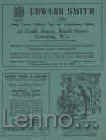 |
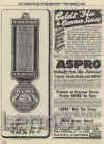 |
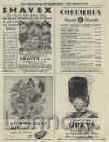 |
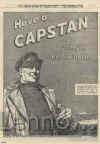 |
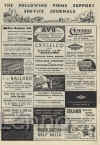 |
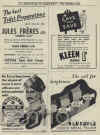 |
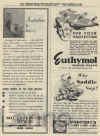 |
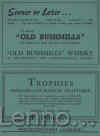 |
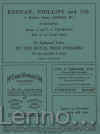 |
|
|
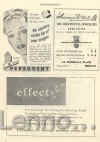
|
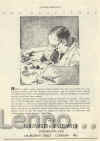 |
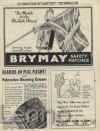 |
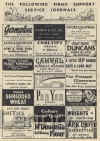 |
|
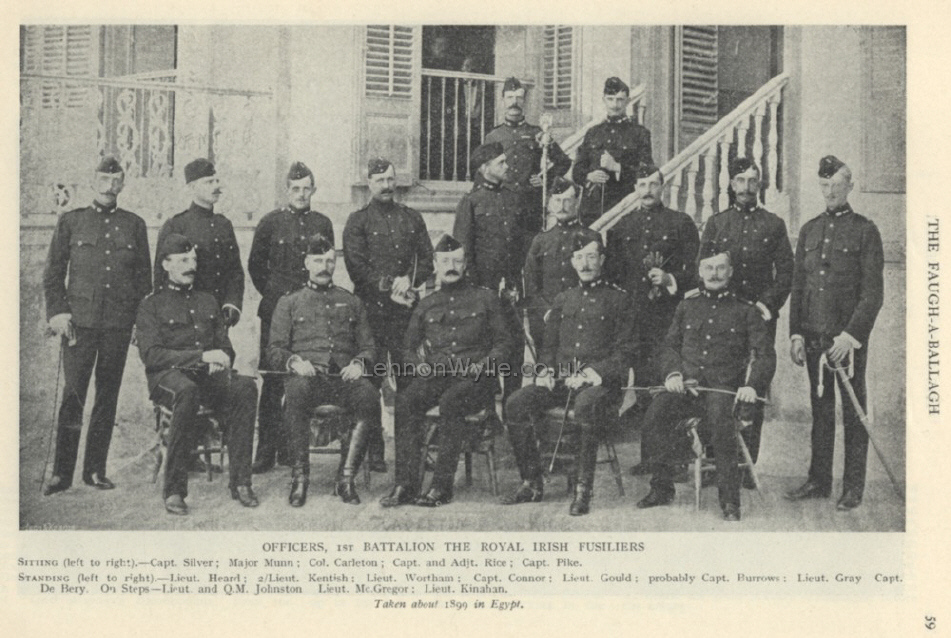
Officers, 1st Battalion The Royal Irish Fusiliers
Sitting (left to right) - Capt. Silver; Major Munn; Col. Carleton;
Capt. and Adjt. Rice; Capt. Pike
Standing (left to right) - Lieut. Heard; 2/Lieut. Kentish; Lieut.
Wortham; Capt. Connor; Lieut. Gould; probably Capt. Burrows; Lieut.
Gray; Capt. De Bery.
On steps - Lieut. and Q.M. Johnston, Lieut. McGregor; Lieut. Kinahan - Taken
about 1899 in Egypt
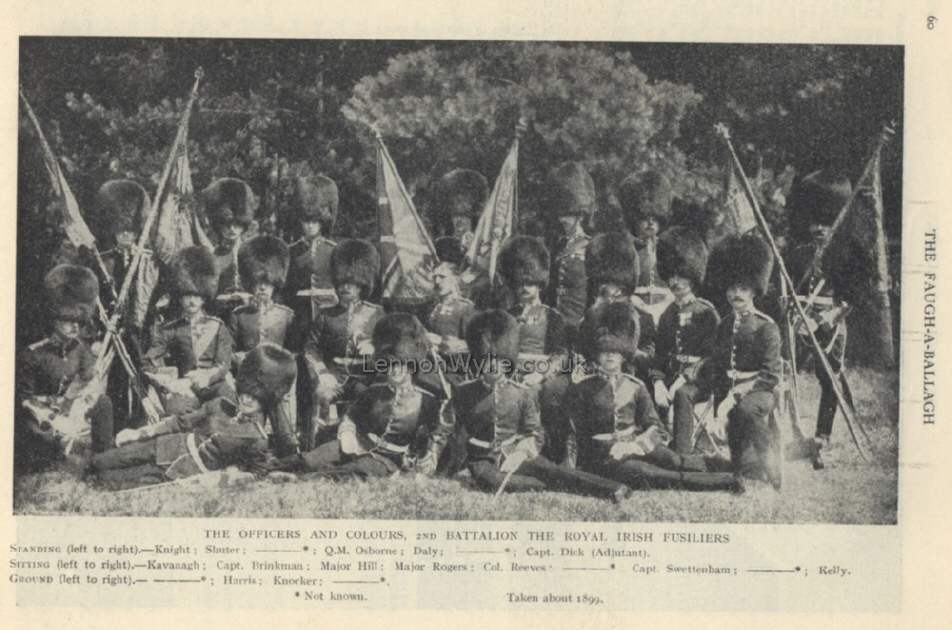
The Officers and Colours, 2nd Battalion The Royal Irish Fusiliers
Standing (left to right) - Knight; Shuter; ? ; Q.M.
Osborne; Daly; ? ; Capt. Dick (Adjutant)
Sitting (left to right) - Kavanagh; Capt. Brinkman; Major Hill; Major
Rogers; Col. Reeves; ? ; Capt. Swettenham; ? ;
Kelly
Ground (left to right) ? ; Harris; Knockers;
? Taken about 1899
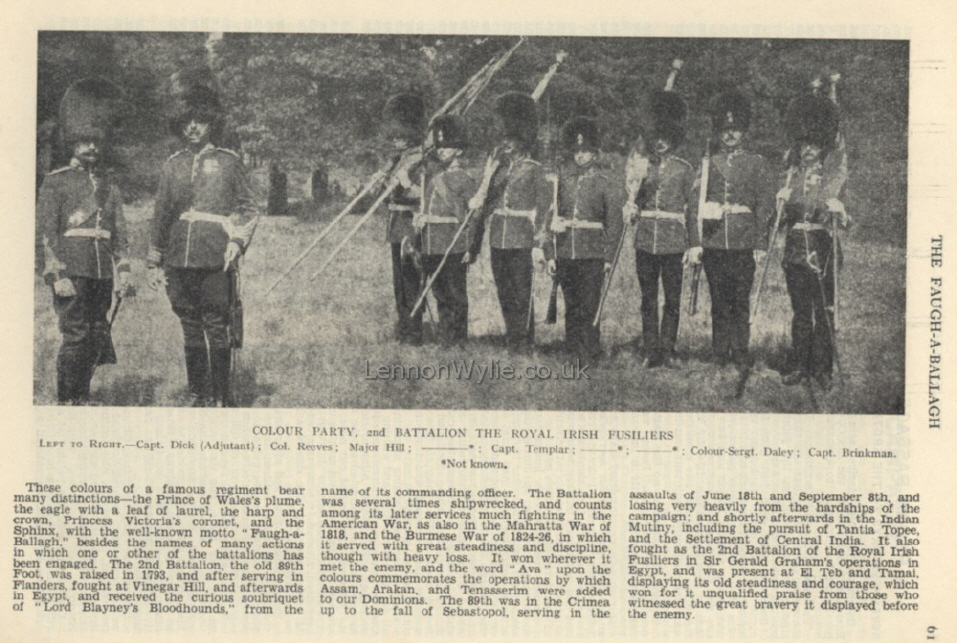
COLOUR PARTY AND
BATTALION THE ROYAL IRISH FUSILIERS
Left to Right - Capt. Dick (Adjutant); Col.
Reeves; Major Hill; -------*; Capt. Templar; -------*; -------*; Colour
Sergt. Daley; Capt. Brinkman
* not known
|
|
These colours of a famous
regiment bear many distinctions - the prince of Wales's plume, the eagle
with a leaf of laurel, the harp and crown, Princess Victoria's coronet,
and the Sphinx, with the well-known motto "Faugh-a-Ballagh"
besides the names of many actions in which one or other of the
battalions has been engaged. The 2nd Battalion, the old 89th Foot, was
raised in 1793, and after serving in Flanders, fought at Vinegar Hill,
and afterwards in Egypt, and received the curious suobriquet of
"Lord Blayney's Bloodhounds," from the name of its commanding
officer. The Battalion was several times shipwrecked, and counts
among its later services much fighting in the American War, as also in
the Mahratta War of 1818, and the Burmese War of 1824-26, in which it
served with great steadiness and discipline, though with heavy loss. It
won wherever it met the enemy, and the word "Ava" upon the
colours commemorates the operations by which Assam, Arakan and
Tenasserim were added to our Dominions. The 89th was in the Crimea up to
the fall of Sebastopol, serving in the assaults of June 18th and
September 8th, and losing very heavily from the hardships of the
campaign; and shortly afterwards in the Indian Mutiny, including the
pursuit of Tantia Topee, and the Settlement of Central India. It also
fought as the 2nd Battalion of the Royal Irish Fusiliers in Sir Gerald
Graham's operations in Egypt, and was present at El Teb and Tamai.
displaying its old steadiness and courage, which won for it unqualified
praise from those who witnessed the great bravery it displayed before
the enemy. |
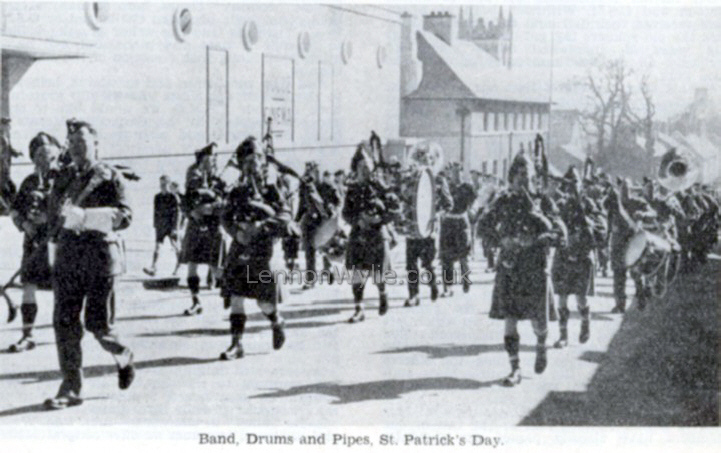 |
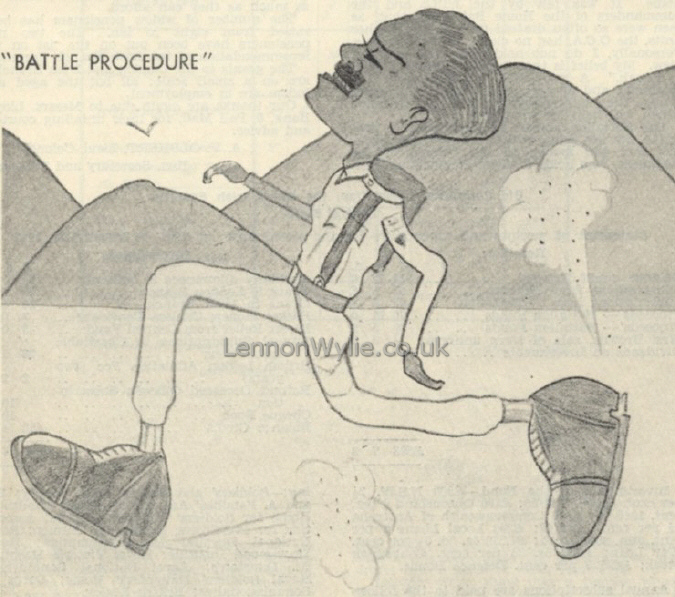 |
| SERGEANTS
MESS NOTES
Marriages
Sergeant W. G. Pincham to Edith Audrey Boggis, 7th February, 1942
Sergeant H. W. O. Bailey to Kathleen Joan Smith, 12th December,
1942
Births
Sergeant W. G. Pincham, a daughter, Stella Doreen, 4th
November, 1942
Before the
days of blitzkreigs (Blitzkriegs) and battle drills, a curt demand for
"Faugh Notes within 24 hours," might hand dismayed us more than
a little, but now, bolstered up as we are with Commando courses and
spells of "intensive training," they become a mere nothing to
be tossed off lightly in an idle moment. First, we have lost R.S.M.
Scarry to the commissioned ranks. He has been replaced by R.S.M. Brady
from the - Battalion. Congratulations and best wishes to both of them in
their new jobs.
We have waved a sad farewell to the following
stalwarts of the Mess, who have left us for fresh fields:- C.Q.M.S.
"Speedo" Farrell, C.Q.M.S. Doyle (who was i/c range at
Ballykinler), Sergeants Neill, Lavery, Attwell, Carroll, O'Brien,
Courtney, Crombie and Gamble. The following sergeants are no longer
with us, having transferred their affections to the Home Guard:-
McGuigan, Shilliday, McNeil, Livingstone and Thorpe. To round off
this long list of departures, Sergeants Summerville and Lance-Sergeants
Reardon, Geeham, Heaney, Jones, Beardmore, Hassan, McGrath, Willoy,
Miller and Adams have all left us and are no doubt maintaining the
"Faugh" traditions both at home and overseas.
Even this does not complete out list of
"Good-byes," as C.S.M. Cummings and C.S.M. "Stan"
Gillespie have both slipped back into their civvy clothes. Stan visits us
often and is looking fit and fine once again after his prolonged stay in
hospital. Apparently his energy is such that it won't allow him to
relinquish the reins of office altogether and he is now "doing his
stuff" as C.S.M. of the Home Guards. "Good Work, that
man!" Also Sergeant Cunningham after a spell with the C.M.P.
As our accounting friends at Battalion H.Q.
would have us remember, "Every debit has a credit," so to
offset the above drainage of Mess strength we give a warm welcome to the
following "new intake." First a big how-do-you-do-to C.S.M.
Jerry Mahoney who has recently returned to this country after a long
spell abroad. Then to these "new boys" who have lately joined
us via the Inniskillings:- C.S.M. Watson, C.Q.M.S. Holmes, Sergeants
McCann, Martin, Wheeler, McGonagle, Hawley and MacHale. Not to be
outdone the - I.T.C. has supplied us with the following talent, C.Q.M.S.
McQuiggan and Sergeant "Sid" Walker, whilst from various other
sources we have received Sergeants Weir, Westall, Plummer and Caughey.
Finally Pipe Major Lamb has joined us from the - Battalion. As a faithful
recorded and scribe of Sergeant's Mess affairs I must offer yet one more
list of names in offering congratulations to the following members of the
Mess who have joined us through promotion, so here's good luck to
Sergeants Holmes, Mackrell, Evans, Bailey, Boddison, Thorne, Owen,
Stranaghan, Tingle, Walker, Kidd, Jackson, Doherty, Kearns, Briggs,
Rowlands, Young, Pincham, Murphy and Leech. The above list, by the
way, is not in order of seniority but just as they happened to come out
of the bag.
Our further felicitations are due to C.S.M.
Watson and C.S.M. Whitfield, both of whom have received their L.S. and
G.C. medal. How does the old soldiers tag go? Something about "18
years of undetected crime" isn't it? Seriously, all the best
and carry on with the good work.
At this stage we regret that our notes must be
marred by recording the passing of one of our ex-members - Sergeant Love.
It's always sad to have to part with old comrades thus, and inevitability
by no means lessens the blow. A floral tribute was sent on behalf of the
Mess.
However, "come wind, come weather" the
activities of the Mess go on from strength to strength, and not all of
them would bear close investigations by the powers that be. For
instances, what would my Lord Woolton have to say if he has spotted those
two eggs for breakfast on Christmas morn? Of course, should any one
of authority read this, we're just kiddin' - but they tasted grand all
the same.
The traditional football match, Officers versus
Sergeants was fought out with all its usual vigour. At one stage of the
game a marvellous smoke screen was put up which left everyone in a fog as
to the final score. The referee refused to give a verdict, and personally
we don't blame him as every time the officers looked like scoring, the
Sergeant's Mess supporters lifted the goal posts bodily and moved them
well out of the danger area.
Several members are following our ex R.S.M.'S
lead to higher spheres and so far two of our members have already passed
for O.C.T.U., whilst even more will be going up for interview very
shortly. To all these we extend our best wishes for success when the time
comes.
During the last quarter, three of our members
have performed the Mendelssohn March up to the altar. Let us immediately
record their names on the Roll of Valour, here they are:- Sergeant
Bailey and two of our attached comrades, Sergeant Minnis (A.P.T.C.) and
Sergeant Harrell (R.E.M.E.). The latter chose one of our A.T.S.
girls for his bride and to him and his two fellow adventurers down the
paths of matrimony we offer every good wish. We are fortunate in having
in our midst C.Q.M.S. McCormack, of B.B.C. fame, and we hope to be
hearing more rendering of Irish airs from him over the radio in the near
future, also those piano duetists, Boddison and Thorne, of N.B.G. fame.
Our old friend the Pioneer Sergeant
("Chippy" to you) is still in hospital. Everyone wishes him a
speedy recovery, especially "Jock" who is lost on the dartboard
without him. Which reminds us that both the dartboard and the table
tennis are becoming increasingly well patronised these days. It is
difficult to name the champions in the respective games and we suggest
that the matter should be settled once and for all by means of a
tournament. What about it Mr. President?
Yet another, though more murky side to our
activities, has been the "fighter sweeps" carried out by
certain sergeants round the local dance halls. Many "kills" and
scores of "probables" have been reported, and up to the moment
of going to press, all our members have returned safely. One brings back
the following report, which, however, will need a good bit of
verification before we can be induced to "swallow" it.
Apparently he was in the village and wondering how long he had before the
last bus left, he approached one of the local blonde bombshells and said,
in his best "pass me the butter" voice, "Excuse me, but
have you the time?" She said she had, so he had to walk back after
all. Another rumour, frequently passing round in Mess gossip circles
recently, is that "Johnny" Dynes, hero of many a hundred yards
dash, has been challenged by C.S.M. Pye. If this is true the writer
is quite willing to arrange a time and place and will be in attendance
along with a section of the stretcher bearers.
And that, Mesdames and messieurs, brings us to
the end of out story. As we slip gracefully back into our F.S.M.O. we
would like to send our best regards to the Sergeants Messes of other
Battalions, and also to the I.T.C. and B.T.N.I.
As we conclude we are looking forward, with
eager anticipation and much licking of lips to this year's "Paddy
Day." So to Faughs everywhere we say, "Chin, chin and
Bottom's up!"
These
Gradings !
There was great excitement the other morning. Fusilier Cupid demanded an interview
with the C.O. and protested against the grading of Q2 in his recent
course. It was pointed out to the Fusilier that he had only scored one
bulls-eye - Lance-Corporal Lowe of the Orderly Room - and that he was
lucky not to have been foiled. The Fusilier stated vigorously that he was
entirely dissatisfied, that he had scored quite a number of other
bulls-eyes, and several near-misses, but that owing to the Official
Secrets Act he couldn't publish their names. He also demanded double
marks in respect of Lance-Corporal Lowe, as it was well known that the
Orderly Room were notoriously difficult targets. He further stated that
the judging was incompetent, because none of the officers and sergeants
had passed their T.O.E.T. in bow-and-arrow shooting,
whilst he had years of experience.
It is understood that in view of the difficult
points raised by Fusilier Cupid (now A/U Lance-Corporal) a Court of
Enquiry is being convened by the 17th March. |
BAND
NOTES
The demand
for our services still continues, and, since the last issue of the
"Faugh," we have been even busier than before. The chief problem
these days is to find time to fit in rehearsals between so many jobs.
Mr. Gallagher has left us temporarily to assist
the East Surrey Regiment in forming a band, and he appears to be quite
happy in his new job.
We are still finding favour with the B.B.C., and
continue to go "on the air" once every month. It was, indeed, a
unique record to see the "Faughs" provide three programmes in
the "Radio Times" in two weeks - first, P. M. Woods and his
band, to whom we offer congratulations on an excellent show; then C.Q.M.S.
MacCormack as a soloist; and lastly, the Regimental Band.
After our last broadcast we were paid a great
compliment by Charles Ancliffe, the composer, who wrote to say never has
he heard his waltz, "Nights of Gladness," performed better, and
that it was as near perfect as he could wish it. He presented the Band
with a set of his new march, "The King's Men," which we are
giving its first performance. Good work, lads!
On 5th April we are on the air twice - in the
afternoon on the Home Service, and at night on the North African Service -
and at the time of going to press we are working hard on programmes. The
following day we are going to break fresh ground and give a Symphony
Concert. This is something out of the usual path of a Regimental Band, but
we are hoping to show the public that Army bands can produce real music as
well as dance music and the lighter vein.
During the absence in hospital of Mr. Brooks the
fort was gallantly held by Sergeant Walsh, who is to be congratulated on
getting excellent reports, especially on the U.S.A. Army parade in
January. The following month we were again massed with the bands of the
Royal Inniskillen Fusiliers and the Royal Ulster Rifles for the Red Army
parade, and we very much enjoyed the friendly rivalry which exists on
these occasions.
We paid a visit to the home of the Regiment, and
gave a concert to a packed house in aid of the Comforts Fund.
We tender our hearty congratulations to Sergeant
and Mrs. Conroy on their marriage, and also to Bandsman and Mrs. Headford
on the birth of a daughter.
Other matrimonial rumours are in the air. Playing
at church services seems to have a romantic appeal to the choir girls.
Besides visiting other units to give concerts and
assist on parade, we have been helping in the training of recruits at a
Primary Training Centre, and have covered many miles round a famous
barrack square. St Patrick's Day, with its celebrations, has come and gone
once more, and the Band, Drums, and Pipes, the latter making their first
public appearance under P. M. Lamb, gave a good account of themselves both
on parade and at the Sergeants' Mess Dance.
In conclusion, we wish the very best of luck to
the many bandsmen who are serving "at duty" with the Battalions.
"BEN MARCATO"
INFORMATION
CORNER
In the last few months we have said good-bye to Major Verschoyle,
how-d-you-do and good-bye to Major Webb-Carter, and now we give a welcome
to Major Shipley.
The following officers were welcomed to our
midst:- 2/Lieutenants Dunn, Major, Salmon, Keeler, Lieutenant Theakston,
2/Lieutenant Bielinky, Lieutenant Coughlan, 2/Lieutenant Deacon,
Lieutenants White and McGrath.
Lieutenants Brown, Hamilton, Theakston and
O'Gorman and 2/Lieutenants Bielinky, Keeler, Dunn and Deacon have left us
and we wish them the best of luck.
Captain Bramwell, our Adjutant, left us at the
end of the year and his place has been filled by Captain I. W. A.
Macbeth, who is already well known by many Faughs.
Considerable ingenuity, usually by the faithful
few, has been shown in the production of Battalion entertainments during
the winter months. Several concerts were held, the artistes coming
entirely from the Battalion and the N.A.A.F.I., and they were well
patronised. Brain Trusts, whist drives, darts, tug-of-war, etc., were all
organised and proved a welcome contrast to the more serious work of the
day.
The proportion of Irish officers in the
Battalion is very heartening. "Well
Done That Man."
Dedicated to the ??? U.T.O.!!
"Well done that man," the Lance Jack cried,
As Smith with laboured breath,
Was learning on the Battle Course,
The way to hand out Death.
"Well done that man," the Sergeant roared,
'Midst bullet, bomb, and smoke;
While Smith with aching eyes and throat,
Was certain he would choke.
"Well done that man," the Captain yelled,
"A splendid show indeed!"
And poor young Smith went toiling on,
With ever lessening speed.
"Well done that man," ..... His senses reeled,
He saw the ditch and shrank;
And took the water-jump too slow;
Fell in ..... and promptly sank.
"Well done that man," .....the bubbles rose,
And with them, poor Smith's Soul;
Instead of facing mud and filth,
He viewed the Heavenly Goal.
"Well done that man," ..... St. Peter said,
And opened up the door,
"You did your level best, my Son,
"And no man can do more.
So Smithy sits aloft these days,
His Battle Course to see;
And murmurs low, "Well done that man ...
"Thank God it isn't ME."
BUNNY HILL Report
RE the Orderly Room
Sir, - On or about 1st January, 1943, and on subsequent dates between
then and 28th February, 1943, I disguised myself as an A.F. B252
(MMT/424242/Page 753 para. 7 of 5552 line 3) and thus passed the Orderly
Room sentries. Sir, I have to report the result of my investigations:-
(1) There have been considerable changes in the
personnel of this important establishment. Amidst the general bustle of
work I noticed the new faces of Corporal Cork, Lance-Corporal Lowe and
Lance-Corporal Mitchell, who have all managed to escape from other
centres of activity ("See posters 'Do you want to do a man's work? -
Join us"'") Fusilier Prince (Staff Captain "G")
continues to smile his way through stacks of documents.
(2) The staff has decided to lay on an extra
layer of fat in anticipation of any moves to regions where food is
scarce, and are reluctantly considering ordering a special bakery for
this purpose. In the meantime they are contenting themselves with two
rations of doughnuts per man according to
A.C.I. - (detailed reference being forwarded).
(3) Expedition by Lance-Corporal ------- to
E----------h (Security) proved very successful. He refers to A.T.S. girls
as "dames" since then. No details are forthcoming.
(4) Sergeant Walker is still the chief cog in
the well-oiled ? wheel, and the Welsh Corporal is now sporting a third
stripe with a broad smile. |
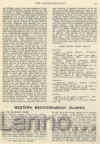
Western Mediterranean Islands
The Balearic Isles |
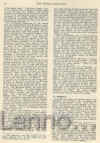
continued The Balearic Isles
Corsica |
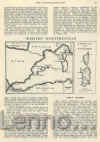
continued Corsica |
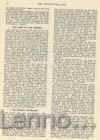
continued Corsica |
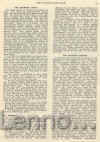
Sardinia |
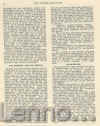
continued Sardinia |
|
|
|
|
| OLD
COMRADES ASSOCIATION
Woodlands,
Wrecclesham,
Farnham, Surrey.
May, 1942.
During the past year there has been a falling
off in the subscriptions from the Battalions at home. It was felt by the
I.T.C. and the commanders of the Home Battalions that, as men were so
often drafted from them to other units, the O.C.A. had no claim on their
pockets. Personally, I do not hold with this point of view. Mt belief is
that "once a Faugh, always a Faugh." A man who has served in
the Regiment and appreciated its spirit will never grudge the small
amount he has paid to funds which will help his successors.
The Battalion abroad has continued to subscribe,
but not being certain of my whereabouts, has sent the money to the
Colonel of the Regiment, who holds it in his Regimental fund.
Subscriptions from officers have fallen
slightly. These are all paid by bankers' orders, few of which have been
made since the outbreak of war. Consequently, the death of every pre-war
officer is a reduction in our income. I do hope that all officers who
read this report will either send me a subscription or a banker's order
for as much as they can afford.
The number of widow pensioners has been raised
from eight to ten. The two new pensioners have been put on the list on
the recommendation of the Irish Branch Secretary.
The grants to the London and Irish Branches are
on a small scale: all but the aged and infirm are in employment.
Out thanks are again due to Messrs. Lloyds Bank,
6, Pall Mall, for their unfailing courtesy and advice.
A. V. Olphert, Lieut.-Colonel,
Hon. Secretary and Treasurer
Old Comrades' Association, the Royal Irish Fusiliers
Central Fund
Statement of receipts and expenditure for the period
April 1st, 1941, to March 31st, 1942
Receipts:-
£ s. d.
Balance credit forward
Subscriptions from Officers
Subscriptions from --- Battalion
Proceeds ---- Battalion Funds
Proceeds ---- Battalion Funds
Mrs. Browne, sale of son's uniform
Dividends on Investments |
314
63
45
20
39
4
106 |
12
5
4
11
5
5
4 |
0
6
4
0
9
0
1 |
| |
593 |
7 |
8 |
Expenditure:-
Quarterly allowances to widows
Grant to London Branch
Grant to Irish Branch
Pocket money, Chelsea Pensioner
Direct Relief from Central Fund
Annual Subscriptions to Charitable Institutions
British Legion Affiliation Fee (two years)
refund Deceased Officer's Subscriptions
Cheque Book
Balance Credit |
55
20
30
3
3
26
2
452 |
10
0
0
0
0
1
2
10
10
14 |
0
0
0
0
0
0
0
0
0
8 |
| |
593 |
7 |
8 |
Investments of the Fund -
£900 N.S.W. 3½ per. cent. Stock 1930/50; £100 Queensland 4 per. cent.
1940/50; £100 Commonwealth of Australia 3¾ per. cent. 1946/49; £200
Local Loans 3 per. cent. ann. stock cert.; £1,552 4s. 6d. 3½ per. cent.
War Loan; £250 5s. 3½ per. cent. Conversion Stock; £625 3 per. cent.
Defence Bonds
Annual Subscriptions are paid to the following:-
Soldiers' and Sailors' Help Society; S.S. and A. Families' Association;
Royal Cambridge Home for Soldiers' Widows; National Association for
ex-Soldiers, Sailors and Airmen; Royal National Hospital for Consumption;
Royal Drummond Institute; Royal Victoria Hospital; St. Dunstan's; Royal
National Sanatorium; Royal Soldiers' Daughters' Home; Corps of
Commissionaires; British Legion.
THE ARMAGH LIGHT
INFANTRY
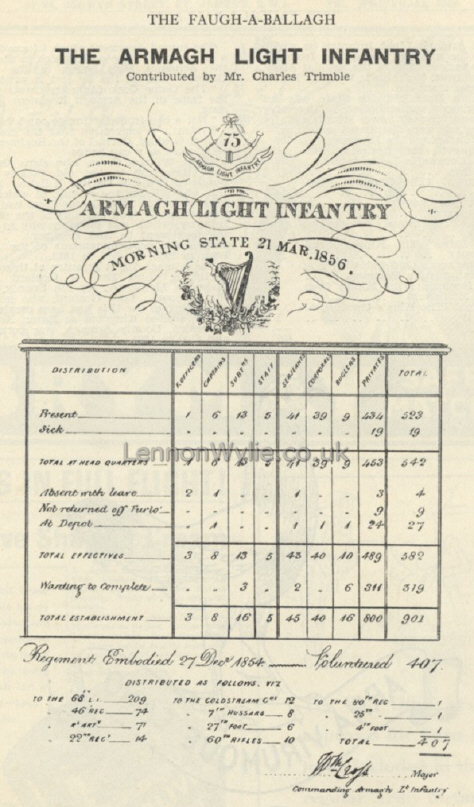
Those who have studied the
history of the Armagh Light Infantry, which later became the 3rd
Battalion of the Royal Irish Fusiliers, know that when the Regiment was
embodied for home service during the Crimean War, they sent a large draft
to the Durhams, then the 68th Light Infantry. It is now so well known
that at the same time the Armaghs also sent drafts to a number of other
regiments.
Recently when going over a number of old papers
to make up a parcel of waste paper to help in the present war, I came
across a parade state of the Armagh Light Infantry on which was set out
the numbers transferred from the Regiment to various units of the Regular
Army, and I am informed that this is the only known record of these
transfers.
Dated March 21st, 1856, the State sets out that
the Regiment was embodied on December 27th, 1854, and that 407 men
volunteered for active service, and were distributed as follows:-
68th Light Infantry (The Durhams)
46th Regt. (2nd Batt. Duke of Cornwall's Light Infantry)
Royal Artillery
22nd Regiment (The Cheshire Regiment)
The Coldstream Guards
The 7th Hussars
27th Foot (The Royal Inniskilling Fusiliers)
The 60th Rifles (The King's Royal Rifle Corps)
The 80th Regiment (2nd Battalion South Staffordshire Regt)
The 25th Regiment (The King's Own Scottish Borderers)
The 4th Foot (The King's Own Royal Regiment) |
209
74
71
14
12
8
6
10
1
1
1 |
The second document which I
turned up bears a sketch of a game cock, which is the crest of the
Achesons (the family of the Earls of Gosford) and on the fly leaf is
written:-
"The Game Cock (Acheson Crest) proclaims
the fame of the Armagh Regiment in modest song.
"Not a bad front for forage cap?"
Evidently a suggestion that the crest of the
Earl of Gosford, Colonel of the Regiment, should be adopted as a cap
badge.
Major William Cross, who signs the parade state,
belonged to the old County Armagh family of Cross of Dartan, Killylea. He
was a D.L. and J.P. for the county, of which he was High Sheriff in 1847.
Major Cross had formerly been adjutant (and captain) of the 68th Light
Infantry, which was probably why so many of the men went to that
Regiment. He later become Colonel-Commandant of the Armaghs. Born in
1815, he died in 1882.
The Armagh Light Infantry at this time had
Archibald, third Earl of Gosford and His Majesty's Lieutenant for the
County, as their Hon. Colonel. Lord Gosford, who previous to succeeding
to the title had been created a peer of the United Kingdom as Baron
Acheson of Glencairn, County Armagh, was born in 1806 and died in 1964.
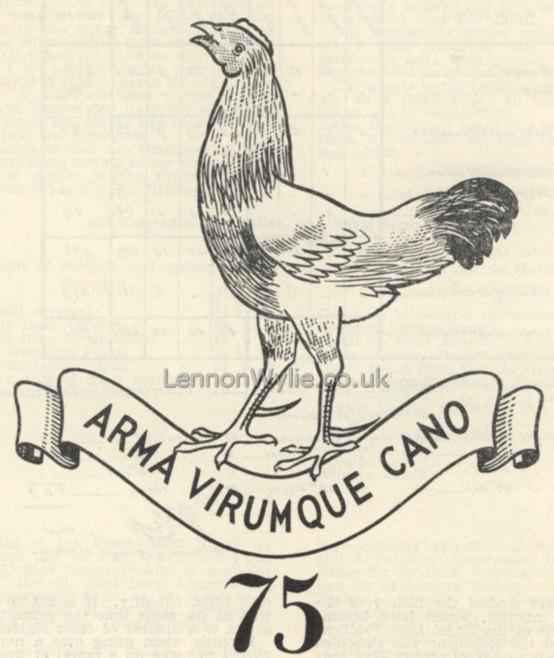
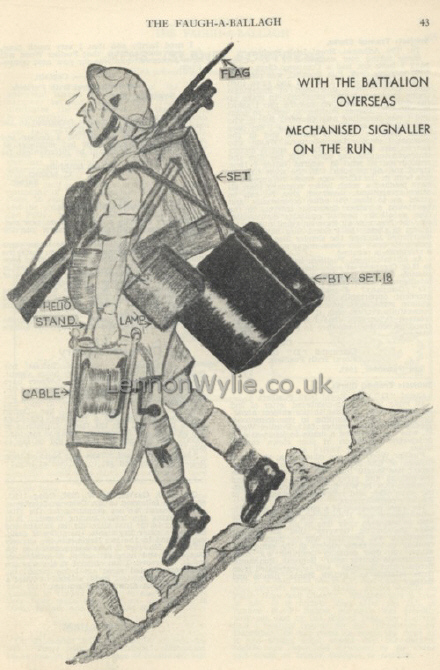
|
Diary
of War Events
September 13th - Heavy fighting continues at Stalingrad
September 14th - Successful combined raid on Tobruk; H.M. destroyers
"Zulu" and "Sikh" lost; R.A.F. raid Bremen and
Russians Rumanian oilfields at Ploesti
September 15th - Germans penetrate into Stalingrad suburbs; Japanese
attack on American positions in Solomon Islands beaten off; R.A.F. bomb
Wilhelmshaven
September 16th - French authorities in Madagascar ask for armistice
September 17th - Germans enter north-western area of Stalingrad; Russians
check hostile advance in North Caucasus; heavy fighting in New Guinea;
British armistice terms in Madagascar rejected by French; heavy R.A.F.
raid on Essen; 39 bombers lost
September 18th - New British landing on east coast of Madagascar; fighting
in Stalingrad suburbs continues; Russians attack in Voronezh sector and
make progress
September 19th - Fierce fighting for Stalingrad still in progress;
successful Australian raid on Japanese shipping in Buna Harbour, New
Guinea
September 20th - Russians recapture lost ground in Stalingrad; R.A.F. bomb
Munich and Saar area; British forces in Madagascar continue advance on
Antananarivo
September 21st - Germans claim advance in Mozdok area of Caucasus;
Japanese advance in New Guinea slows down
September 22nd - Russians in Stalingrad regain more ground; British raid
Axis bases in Egypt; Germans make exaggerated claims of losses
inflicted on Arctic convoy
September 23rd - Russians commence counter offensive against German flank
north-west of Stalingrad; British in Madagascar occupy Antananarivo
September 24th - New German attacks at Stalingrad repulsed; R.A.F. raid
Flensburg and Russians bomb Budapest
September 25th - Fighting in Stalingrad main street; 40 enemy aircraft and
two submarines claimed destroyed in attack on Arctic convoy
September 26th - Russians gain more ground north-west of Stalingrad;
R.A.F. raid Oslo in daylight without loss
September 27th - Russians repulse German thrust in centre of Stalingrad
and retake more buildings on outskirts of city
September 28th - Fighting in Stalingrad area continues; Australians assume
offensive in New Guinea; U.S. aircraft damage Japanese warships and
transports in Solomons
September 29th - Russians counter-offensive north-west of Stalingrad
reaches River Don; R.A.F. raid Munich and Bremen
September 30th - Enemy attacks held at Stalingrad; Australians recapture
Ioribaiwa Ridge in New Guinea
October 1st - Russians counter-offensive north-west of Stalingrad gains
ground; enemy attack in Mozdok area checked; local British attack in
Egypt; Australian in New Guinea occupy Nauro
October 2nd - Russians retake lost ground in Stalingrad; R.A.F. raid
Flensburg
October 3rd - Fighting in Stalingrad still heavy
October 4th - Australians in New Guinea occupy Elogi
October 5th - Germans gain ground in outskirts of Stalingrad; British
occupy whole of Madagascar railway system; heavy fighting in Solomons;
U.S. troops hold all positions
October 6th - New heavy battle in Stalingrad; Russian advance north-west
of city continues; R.A.F. raid Western Germany; Australian advance in New
Guinea still goes forward
October 7th - German attacks in Stalingrad held in check; but make slight
progress in Caucasus; R.A.F. raid Osnabruck
October 8th - Germans fetter British prisoners in reprisal for alleged
binding of German troops during raid on Sark; British announce that equal
number of German prisoners will be fettered; Australian advance in New
Guinea slows down
October 9th - New German attack at Stalingrad repelled; heavy R.A.F. and
U.S. Air Force daylight raid on factory at Lille; German threat to fetter
three times number of British prisoners if any German prisoners fettered
October 10th - German attack at Stalingrad slackens; heavy fighting in
Mozdok area; German prisoners of war fettered in reprisal for fettering of
British prisoners. One hundred and five hostile aircraft destroyed or
damaged in R.A.F. and .U.S. air force raid on Lille
October 11th - Battle dies down at Stalingrad; heavy R.A.F. raid on Axis
bases in Western Desert of Egypt
October 12th - German attack in Mozdok area repulsed; Japanese launch
naval attack on Solomon Islands
October 13th - Minor activity only at Stalingrad; Japanese attack in
Solomons repulsed; six enemy ships sunk; forty-eight Axis aircraft shot
down over Malta; R.A.F. raid North-West Germany
October 14th - Naval engagement between light craft in North Sea, one
hostile E-boat sunk; heavy R.A.F. raid on Kiel
October 15th - Heavy new hostile attacks launched at Stalingrad and at
Tuapse in Caucasus; fifteen Axis aircraft shot down at Malta; heavy
fighting in Solomons; successful naval attack on enemy shipping in Channel
October 16th - German attacks in Stalingrad checked; U.S. troops arrive in
Liberia; Australians cross crest of Owen Stanley range in New Guinea
October 17th - Germans continue slow advance in Stalingrad; successful
R.A.F. daylight raid on Le Creusot armament works in France
October 18th - Germans progress in Stalingrad slows down; Japanese
reinforcements land in Solomon Islands; enemy raids on Malta continue,
total of aircraft destroyed last week now 112
October 19th - Fighting slackens down in Stalingrad; U.S. warships shell
Japanese positions in Solomon Islands; hostile air raids on Malta less
intense
October 20th - Hostile attacks in Stalingrad repulsed; Australians in New
Guinea repulse Japanese counter strokes
October 21st - Russians regain ground in Stalingrad; U.S. Air Force bomb
Lorient; R.A.F. fighters raid Western Germany; intensive air activity in
Egypt
October 22nd - German attack in Caucasus repulsed; Australians in New
Guinea continue advance in Kokoda
October 23rd - German attacks in Stalingrad checked; heavy R.A.F. raid on
Genoa and daylight attacks on targets in France, Low Countries and
Germany; allied air attacks in Egypt continue
October 24th - Eighth Army launches offensive in Egypt; R.A.F. raid Genoa;
German attacks in Mozdok area die down
October 25th - Eighth Army offensive continued successfully; R.A.F. raid
Milan by day and night; Germans make slight gain in Stalingrad; allied
bombers sink 11 Japanese ships at Rabaul; Japanese attack in Solomons
repulsed
Octobers 26th - Eighth Army holds gains in Egypt; Russian counter-attacks
regain lost ground in Stalingrad; Japanese suffer naval losses and damage
in Solomon Islands
October 27th - Hostile counter-attacks beaten off in Egypt; Russians
recover more ground in Stalingrad area
October 28th - Hostile tank counter-stroke beaten off in Egypt; Germans
gain ground in Stalingrad; Russian success in Tuapse area; enemy attacks
on U.S. positions in Guadalcanal repulsed
October 29th - German attacks repulsed at Stalingrad; fighting breaks out
in Nalchik area of Caucasus
October 30th - Eighth Army gain more ground in Egypt; Russians hold ground
at Stalingrad and advance to north-west and south of city; Japanese fleet
withdraws from Guadalcanal area; British enter Fianarantsoa in South
Madagascar
October 31st - Pause in fighting in Egypt; German attack in Nalchik area
of Caucasus continues
November 1st - Successful U.S. air attack on enemy shipping in Solomons;
Eighth Army makes fresh advance in Egypt; fighting at Stalingrad less
intense
November 2nd - Axis detachment enclosed in pocket in Egyptian battle, attempts
to break ring fail; Russians evacuate Nalchik; Japanese naval forces
compelled to evacuate Solomons area after considerable losses from
U.S. attacks
November 3rd - Axis positions in Egypt broken through in centre;
Australians continue advance in New Guinea
November 4th - Axis forces retreat under close pursuit and heavy attack;
Germans launch new general attack at Stalingrad
November 5th - British pursuit of Axis remnant in Egypt continues; German
attack on Stalingrad fails
November 6th - British forces reach area 100 miles west of El Alemein
4,000 more hostile prisoners taken; armistice signed and hostilities cease
in Madagascar
no 7th?
November 8th - U.S. forces land on coast of French North Africa with
support of British Navy and R.A.F.; appeal to French people and armed
forces to co-operate with Allies; precipitate Axis retreat in Egypt
continues; R.A.F. raid Genoa and targets in Western Europe
November 9th - U.S. forces in North Africa attack Algiers, Oran, Rabat and
Casablanca; British troops land in support; relations between U.S.A. and
Vichy France broken off; Axis rearguard cut off at Mersa Matruh
surrenders; R.A.F. and U.S.A.A.F. bomb St. Nazaire and Havre
November 10th - Algiers capitulates to U.S. forces under general
Eisenhower; fighting continues at Oran, Casablanca and Rabat; Germany
denounces armistice with France and proclaims intention of occupying all
French territory in Europe
November 11th - Oran and Rabat surrender to Allied forces; German troops
enter Vichy Francs and send airborne troops to Tunisia; British forces in Egypt
capture Axis rearguard at Buq Buq
November 12th - British First Army in Algeria commence advance on Tunisia.
Eighth Army cross frontier from Egypt into Cyrenaica
November 13th - British First Army occupies Bona; Eight Army reoccupies
Sollum, Bardia and Tobruk
November 14th - British First Army crosses frontier from Algeria into
Tunisia; Eighth Army occupies Gazala; Japanese in New Guinea driven from
Wairopi
November 15th - Thirteen enemy U-boats destroyed off North African coast;
Eighth Army occupies Tmiimi, and total of Axis losses in Egypt now 75,000;
R.A.F. raid Genoa again; Germans complete occupation of Vichy France
except for Toulon
November 16th - R.A.F. bomb Tunis aerodrome and Genoa; Eight Army occupies
Martuba; U.S.A. fleet defeats Japanese in Solomons, sinking enemy
battleship, five cruisers, five destroyers and 12 transports for loss of
two cruisers and five destroyers
November 17th - Eighth Army occupies Derna and Mekiki; Allied forces in
New Guinea close in on Japanese base at Buna and Gona
November 18th - Germans renew attack in Stalingrad; allied advance in New
Guinea continues
November 19th - German attack in Stalingrad repulsed and Russians win
decisive local victory in Central Caucasus; British First Army drives back
German advanced troops in Tunisia; R.A.F. raid Turin
November 20th - Eighth Army occupies Benghazi; three Japanese warships
sunk or damaged off New Guinea
November 21st - Russian counter-offensive on both flanks of German forces
engaged before Stalingrad launched; allied forces in New Guinea close in
on Buna and Gona
November 22nd - Russians cut railways leading west and south-west from
Stalingrad and make large captures of prisoners and material
November 23rd - Russian progress west of Stalingrad continues; Eight
Army occupies Jedabia; Allies in New Guinea capture Gona
November 24th - Russians capture three enemy divisions west of Stalingrad;
Eighth Army occupies Jalo; First Army in Tunisia occupies Medjez-el-Bab
November 25th - German forces retreating from Stalingrad cut off and
captured or destroyed; heavy fighting continues at Buna in New Guinea
November 26th - Russian successes west of Stalingrad continue; two
Japanese destroyers sunk off New Guinea
November 27th - Germans occupy Toulon, last free area of France, French
warships in harbour scuttled and sunk. First Army in Tunisia advances to
within 20 miles of Tunis and Bizerta
November 28th - First Army occupies Djedeida; R.A.F. raid Turin
November 29th - Russian attacks in Stalingrad area and on central front
continue successfully; R.A.F. raid Tripoli and Turin; two French
submarines escape from Toulon, reach Algiers
November 30th - Russian offensives make continued progress; First Army
continues offensive towards Tunis and Bizerta; Allies clear Japanese from
Gona in New Guinea; French Island of Reunion in Indian Ocean declares for
Allies
December 1st - Russians continue advance in Stalingrad area and on central
front
December 2nd - Axis counter-attack west of Tunis repulsed by First Army;
two hostile destroyers and four supply ships sunk in Mediterranean; H.M.
destroyer "Quentin" lost; six Japanese destroyers and one U.S.
cruiser sunk in naval battle off Solomon Islands
December 4th - Russian offensives in both areas continue successfully; two
enemy merchant ships sunk off Tunisia; R.A.F. raid on Naples, Italian
cruiser sunk and battleship and cruiser damaged
December 5th - Russians cross Don south-west of Stalingrad; First Army in
Tunisia evacuates Djedeida and Tebourba
December 6th - Fierce fighting in Rzhev and Veliki Luki areas on central
front in Russia; R.A.F. again raid Turin
December 7th Heavy German counter-attacks on Russian battlefronts fail;
Axis counter-attack at Tebourba in Tunisia repulsed; Allies in New Guinea
gain more ground at Buna
December 8th - Russian offensive progress on both battlefronts slowed down
by enemy counter-attacks
December 9th - Heavy fighting on Russian battlefronts continues; Japanese
attempt to land reinforcements in New Guinea frustrated
December 10th - R.A.F. raid Turin again; Allies in New Guinea occupy whole
of Gona area.
December 11th - Allies in Tunisia repulse hostile counter-attacks at
Medjez-el-bab; hostile counter-attacks in Stalingrad area fail
December 13th - New enemy counter-attacks in Tunisia repulsed; successful
allied attacks on Axis shipping and transport aircraft in Mediterranean;
R.A.F. raid Turin again. Russian claim 170,000 Germans killed and
prisoners in recent offensives
December 14th - Axis forces in Libya evacuate Agheila defences; German
counter-offensive south-west of Stalingrad gains some ground
December 15th - Axis retreat into Tripolitania continues. German offensive
in Stalingrad checked; Allies in New Guinea capture Buna
December 16th - Eight Army continues pursuit of Rommel's Army in
Tripolitania; Russians recover ground lost south-west of Stalingrad
December 17th - Eighth Army cuts off part of Rommel's rearguard west of El
Agheila; heavy allied raid on Tunis
December 18th - Eighth Army occupies Nofilia. British submarines sink Axis
shipping in Mediterranean
December 19th - New Russian offensive south of Voronezh cuts railway to
Rostov. 30,000 Germans killed or captured; Indian troops advance across
frontier of Burma north-west of Akyab
December 20th - Russian offensive continues to make rapid progress; heavy
raids by day and night by R.A.F. and U.S.A.F. on French and German
targets; Allies gain more ground in New Guinea
December 21st - Russian advance foes on; Eighth Army occupies Sultan;
heavy allied air raids on Duisburg and Romilly-sur-Seine
December 22nd - Russians approach Millerovo; R.A.F. bomb Munich; allied
attacks progress in New Guinea
December 23rd - Russians claim capture of total of 36.600 prisoners in Don
offensive; allied advance in New Guinea continues
no 24th or 25th
December 26th - Russians continue advance successfully in Don bend and
south-west of Stalingrad; Admiral Darlan assassinated at Algiers; Eighth
Army advance in Tripolitania goes on
December 27th - First Army makes local advance near Medjez-el-Bab in
Tunisia
December 28th - Russian advance continues across Don bend; General Giraud
replaces Admiral Darlan as High Commissioner in French North Africa;
Eighth Army in Tripolitania occupies Sirte
December 29th - Russians occupy Koyelnikovo; First Army evacuates ground
recently gained in Tunisia
December 30th - Russians advance in Kalmuck Steppe area south of
Stalingrad; R.A.F. and U.S.A.F. raid Lorient
December 31st - Russian advance continues on whole front south of Don;
German casualties in recent offensive stated to be 175,000 killed and
captured; Allies make fresh advance in New Guinea
1943:
January 1st - Russians capture Veliki Luki on central front and Elista
in Kalmuck area; British submarines sink Axis destroyer and two supply
ships in Mediterranean; twenty Japanese aircraft shot down in raid on Lae,
in New Guinea
January 2nd. - Russian advance in Don front continues; allied aircraft
raid Rabaul and targets in Burma
January 3rd - Russians occupy Mozdok and Malgobek in Northern Caucasus;
Allies in New Guinea occupy Buna Mission Station; R.A.F. and U.S.A.F. bomb
Crete and St. Nazaire
January 4th - Russian advance continues in Don, North Caucasus areas;
R.A.F. bomb Ruhr; Axis attach on French in Tunisia repulsed
January 5th - Russians occupy Tzimlyansk on Don front and Nalchik and
Prokhlacnaya junction in North Caucasus; Eighth Army in Tripolitania
occupies Buerat
January 6th - Russians on Kalmuk front reach river Manych; First Army
makes successful local attack west of Mateur
January 7th - Russian advance continues on all sectors; Fighting French
from Chad territory capture Italian post of Cum-el-Araneb in Fezzan; First
Army evacuate gains at Mateur
January 8th - Russians on Don front capture Zimovniki; heavy Axis air and
surface attacks on Russian-bound convoy beaten off; H.M. destroyer
"Archates" and enemy destroyer sunk; heavy allied air attacks on
Japanese convoy bound for New Guinea sink two transports
January 9th - Russian advance on whole southern front continues; allied
air attacks on Japanese New Guinea convoy sink another ship; R.A.F. bomb
Ruhr
January 10th - Russians cross Kuma river in Caucasus; R.A.F. bomb Ruhr
again; Japanese losses in New Guinea convoy total 133 aircraft and six
ships lost or damaged
January 11th - Russians occupy Georgievsk and whole of Caucasus Spa
territory
January 12th - Russians continue advance; R.A.F. bomb Naples; Fighting
French complete conquest of Fezzan by capture of Murauk and Sebha
January 13th - Russian advance in north Caucasus continues. U.S.A.A.F.
bomb Tripoli, destroying 40 hostile aircraft. Heavy Allied daylight raids
on Lille. St. Omer and Abbeville. R.A.F. bomb Ruhr at night
January 14th - R.A.F. raid Essen. Allies in New Guinea, capture Mubo,
south of Salamaua
January 15th - Russian advance goes forward in Caucasus area and north of
Donetz. R.A.F. and U.S.A.A.F. raid Lorient
January 16th - New Russian offensive south of Voronezh advances to depth
of 50 miles, and captures 32,000 prisoners. 8th Army drives Axis troops
from positions on Wadi Zemzem. R.A.F. raid Berlin
January 17th - Russians capture Millerovo and cross Donetz river at
Kamensk. Axis forces in Tripolitania retire from Wadi Zemzem position.
R.A.F. raid Berlin again. Germans lose 10 machines out of 60 in raid on
London
January 18th - Russians raise 16 months siege of Leningrad. 8th Army's
advance toward Tripoli continues. Allied aircraft sink 4 Japanese ships in
raid on Rabaul
January 19th - Russians capture Valuiki and Kamensk. 8th Army occupy
Misurata. Allies reach sea at Sanananda Point in New Guinea
January 20th - Russian advance continues in all fronts. Enemy attack gains
ground in Pont du Fahs area of Tunisia. 13 Axis ships sunk in
Mediterranean in 3 days. Hostile day raid on London, 11 machines shot down
January 21st - Russians capture Voroshilovsk in Caucasus. 8th Army
occupies Homs and Tarhuna. Enemy progress in Tunisia checked
January 22nd - Enemy offensive in Tunisia resumed. Russian advance
continues all along front from Voronezh to Caucasus
January 23rd - 8th Army occupies Tripoli. Russians occupy Armavir in
western Caucasus. Remnant of Japanese forces at Sanananda in New Guinea
destroyed
January 24th - 8th Army advances beyond Tripoli towards Zuara. Russians
occupy Starobielsk
January 25th - Russians continue advance; Germans evacuate Don bridgehead
at Voronezh. Hostile advance checked in Tunisia. R.A.F. raid targets in
Sicily and Holland
January 26th - Meeting of President of U.S.A. and Mr. Churchill at Casablanca
announced; also meeting of Generals Giraud and De Gaulle. Russians destroy
all but small remnants of German forces cut off at Stalingrad. 8th Army
occupies Zaura
January 27th - R.A.F. raid Dusseldorf, Russians commence new offensive
north-west of Voronezh
January 28th - Russians occupy Kastornaya, west of Voronezh
January 29th - Russians capture Novo Oskol, west of Voronezh and
Vcropotkin in Caucasus. 8th Army cross western frontier of Tripolitania
January 30th - Russians occupy Tikhorets junction and Maikop oil fields
area. R.A.F. raid Berlin in daylight, and also Emden, 5 machines lost
January 31st - Field-Marshall Paulus and greater part of German forces
surrounded outside Stalingrad surrender. German attack launches west of
Sfax in Tunisia. R.A.F. raid Messina
February 1st - Mr. Churchill's visit to Turkey announced. Russians capture
Svatovo, south-west of Kharkov. 8th Army enters Zuara. R.A.F. raid Messina
again
February 2nd - Remnant of German 6th Army cut off outside Stalingrad
surrenders. Naval action begun in Solomon Islands area. Mr. Churchill's
visit to Cyprus announced. Local fighting in southern Tunisia begins
February 3rd - Russians cross Orel-Kursk railway and capture Kuplansk,
also Kushchevka on Rostov-Krasnodar railway. R.A.F. raid Cologne in force
February 4th - Russians close in on Kursk, occupying Tim and Schchigry.
Allies make local advance in north Tunisia. R.A.F. bomb Hamburg; 16
machines lost. U.S.A.A.F. raid north-west Germany in daylight. Heavy Axis
shipping losses in Mediterranean reported
February 5th - Russians occupy Izyum, Mr. Churchill's visit to 8th Army at
Tripoli announced. Local advance effected by 1st Army near Bou Arada in
Tunisia. R.A.F. raid Turin and Spezia
February 6th - Russians capture Barvemkovo in the Ukraine, and Baraisk and
Yeisk in Kuban area. Mr. Churchill arrives back in Britain |
|


























